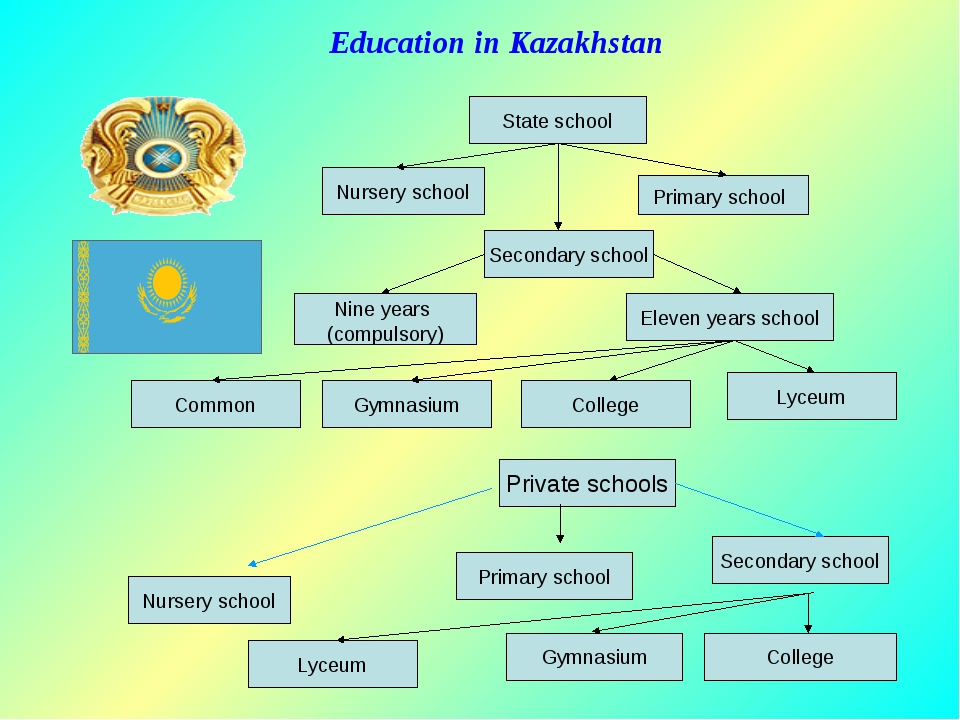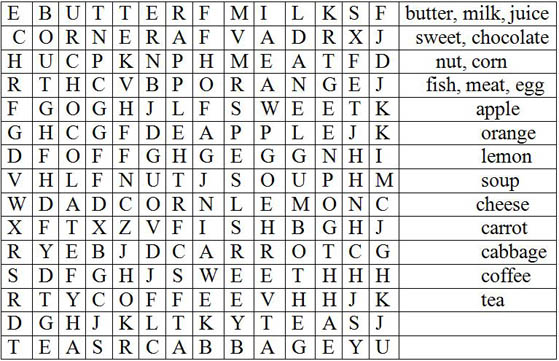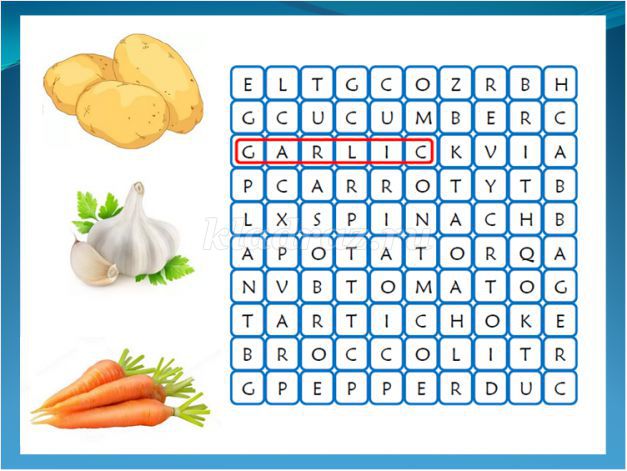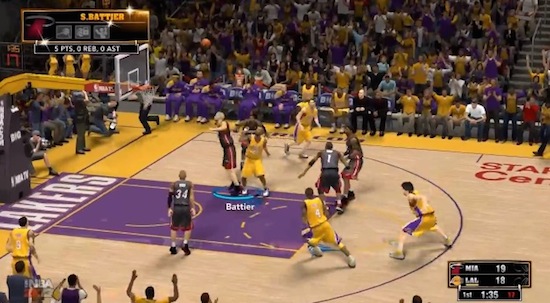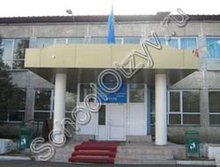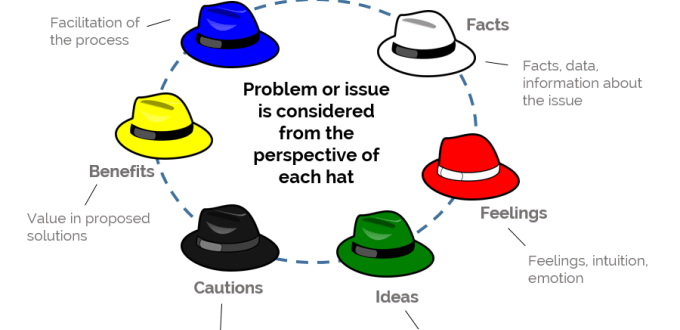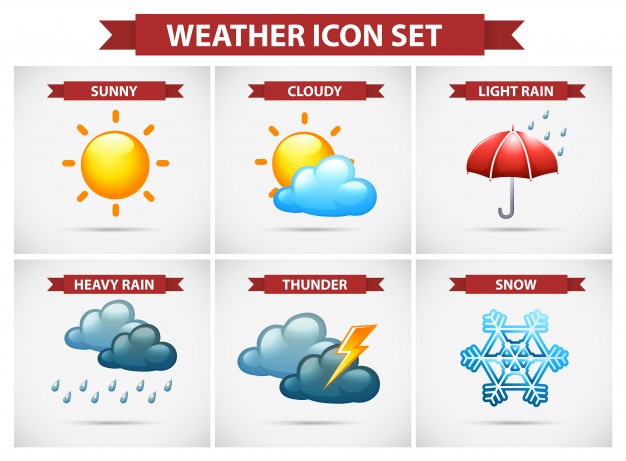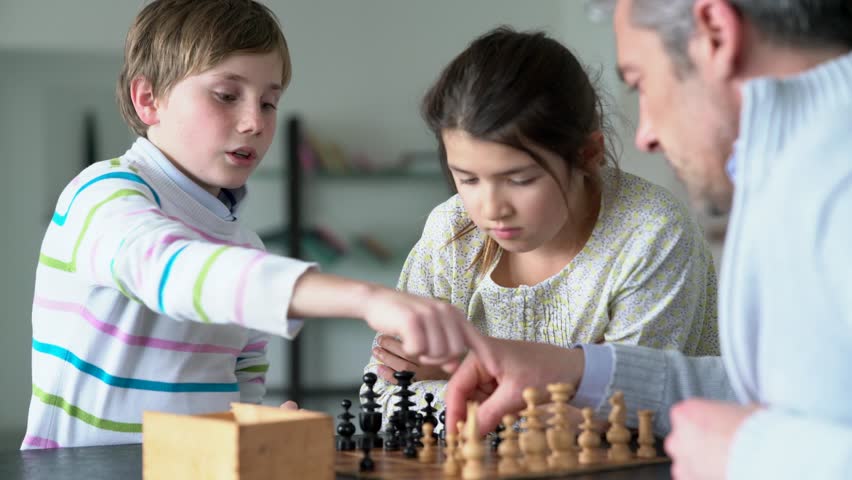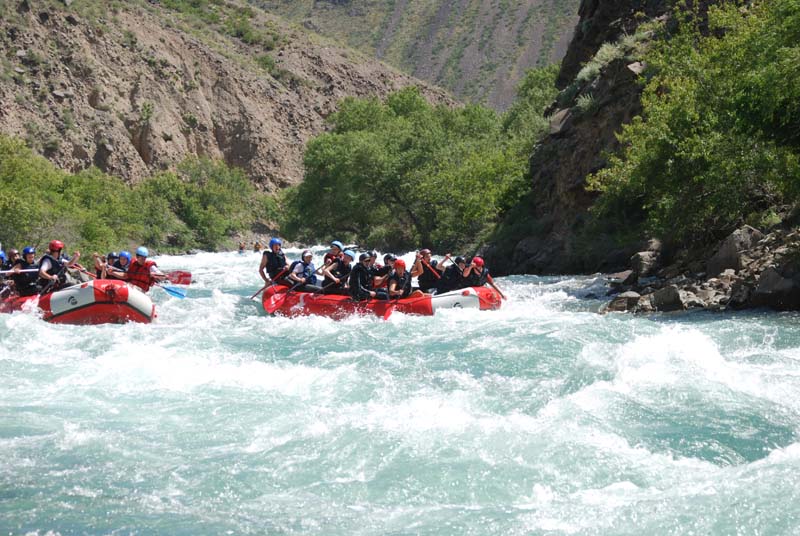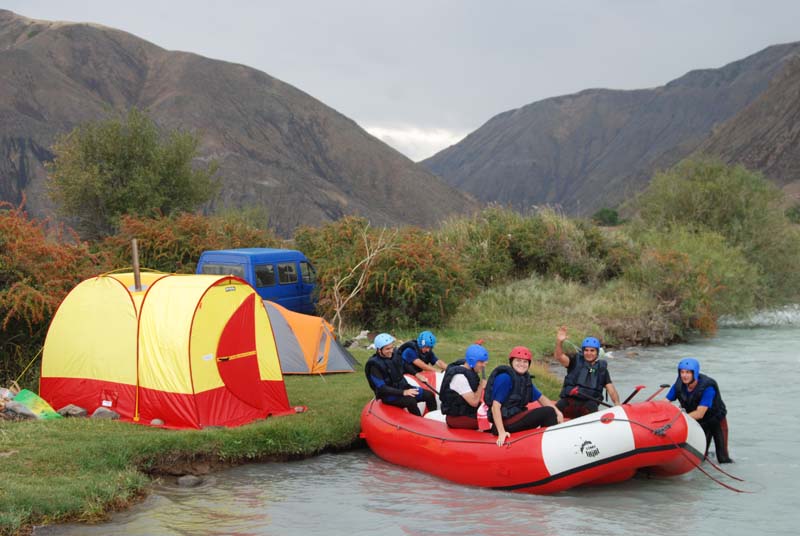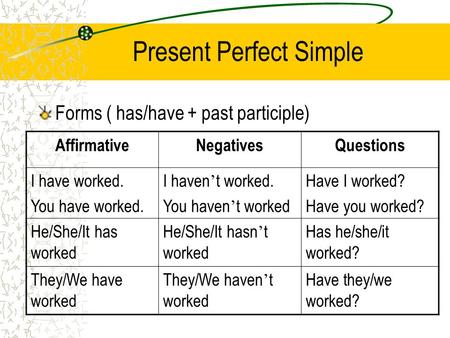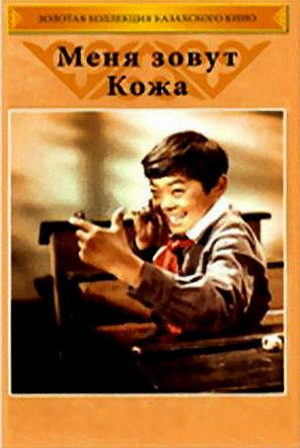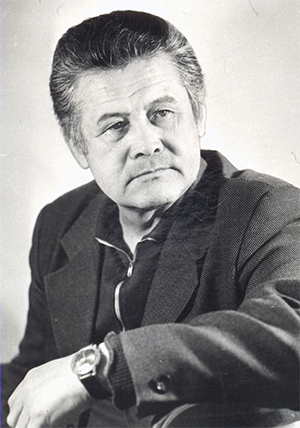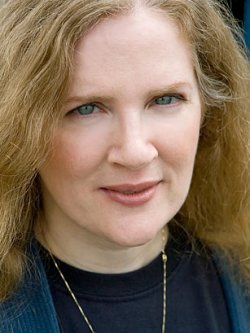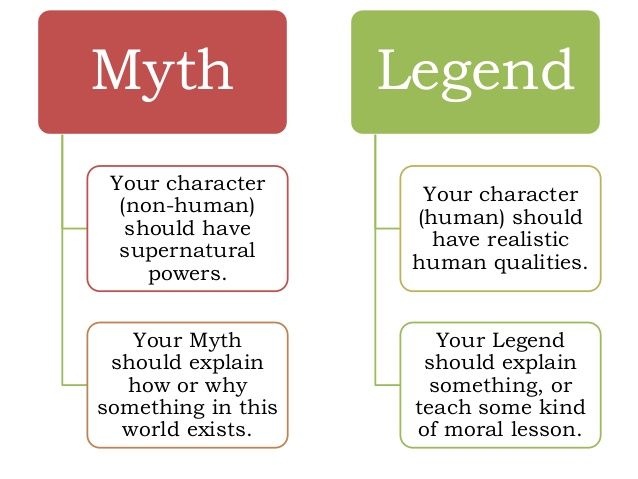
Short term lesson plan III term
|
Unit of a long term plan: Unit 5 Our Health. Lesson plan 49
|
School: |
|||||||||||||||||||||||||
|
Date: |
Teacher's name: |
|||||||||||||||||||||||||
|
CLASS: 6 |
Number present: |
absent: |
||||||||||||||||||||||||
|
Lesson title |
Activities in and out of school |
|||||||||||||||||||||||||
|
Learning objectives(s) |
6.C9 use imagination to express thoughts, ideas, experiences and feelings 6.L1 understand a sequence of supported classroom instructions 6.S1 provide basic information about themselves and others at sentence level on an increasing range of general topics 6.S6 communicate meaning clearly at sentence level during, pair, group and whole class exchanges |
|||||||||||||||||||||||||
|
Lesson objectives |
All learners will be able to:
Most learners will be able to:
Some learners will be able to:
|
|||||||||||||||||||||||||
|
Plan |
||||||||||||||||||||||||||
|
Planned timings |
Teacher’s activities |
Pupil’s activities |
Marks |
Resources |
||||||||||||||||||||||
|
Start
|
Class organisation Warm-up and lesson objectives presentation Warm-up (W, I) Good afternoon, dear students and guests! Welcome to our English lesson! Look at the pictures and say what the theme of our lesson will be? |
Students respond to greeting Ss answer the questions |
Formative assessment is held through observation/monitoring. Emoticon |
Internet Presentation |
||||||||||||||||||||||
|
Main part
|
Lead-in (W, I)
Revise the school subjects vocabulary by asking students to add more words to the list they already guessed. Match 8 of the words in the box with photos 1 - 8 p.57. The teacher asks if Sts. know the full names of: P.E. - Physical Education, ICT - Information and Communication Technology. Sts are divided into 3 groups and guess the subjects and the right answers. The winner gets 10 scores.
PRE - LISTENING TASK: Ex.3 p.56( Check the meaning of phrases and add your word - combinations from ex.1): Dance practice - Dance/ basketball/ Music/ chess/ football practice; Maths/ Science/ History/ Geography/ French/ Music/ ICT test; While - listening task: listen to Alan and Jessica talk about activities and complete the sentences. What is their favourite day? In pairs ask questions to get more details: How often does Alan have Science? Write as many questions as you can to get more information. What is their favourite day? - Saturday. And yours? Why?
|
Students think critically, exploring, developing, evaluating and making choices about their own and others’ ideas
Student:
|
Formative assessment is held through observation/monitoring.
Comments
Emoticon
Formative assessment is held through observation/monitoring |
Video and images
https://onlinemektep.org/schedule/ Bilimland
Handouts with task
|
||||||||||||||||||||||
|
End
|
Home task. WB p.40 Students express their attitude to the lesson and give self-assessment using the method: “Six thinking hats”: |
Feedback |
||||||||||||||||||||||||
Short term lesson plan
|
Unit of a long term plan: Unit 5 Our Health. Lesson plan 50
|
School: |
|||||||||
|
Date: |
Teacher's name: |
|||||||||
|
CLASS: 6 |
Number present: |
absent: |
||||||||
|
Lesson title |
School life. |
|||||||||
|
Learning objectives(s) |
6.S1 provide basic information about themselves and others at sentence level on an increasing range of general topics 6.S2 ask simple questions to get information about a limited range of general topics 6.S3 give an opinion at sentence level on a limited range of general and curricular topics |
|||||||||
|
Lesson objectives |
All learners will be able to:
Most learners will be able to:
Some learners will be able to:
|
|||||||||
|
Plan |
||||||||||
|
Planned timings |
Teacher’s activities |
Pupil’s activities |
Marks |
Resources |
||||||
|
Start
|
Class organisation Pre-learning (W) Teacher greets the class and suggests playing the game to the learners. Teacher explains the rules for this The teacher shows the picture and introduces the objectives of the lesson.
|
Students respond to greeting Ss answer the questions |
Formative assessment is held through observation/monitoring. Emoticon |
Internet Presentation |
||||||
|
Main par
|
Ex. 1 -2 p.58 The teacher asks Sts. to read the text quickly and count the number of paragraphs.(7) and underline the unknown words. Read about Beibit school and compare his school with yours.
Ex. 3 - 4 p.58( Discussion Work).
|
Students think critically, exploring, developing, evaluating and making choices about their own and others’ ideas Student:
|
Formative assessment is held through observation/monitoring. Comments Emoticon Formative assessment is held through observation/monitoring |
Video and images
https://onlinemektep.org/schedule/ Bilimland Handouts with task |
||||||
|
End
|
Home task. My school ( a composition) w. Students express their attitude to the lesson and give self-assessment using the method: “Six thinking hats”: |
Feedback |
||||||||
Short term lesson plan
|
Unit of a long term plan: Unit 5 Our Health. Lesson plan 51
|
School: |
||||||
|
Date: |
Teacher's name: |
||||||
|
CLASS: 6 |
Number present: |
absent: |
|||||
|
Lesson title |
Language Focus. Can for ability and permission. |
||||||
|
Learning objectives(s) |
6.C1 use speaking and listening skills to solve problems creatively and cooperatively in groups 6.C9 use imagination to express thoughts, ideas, experiences and feelings 6.UE 13 use might may could to express possibility on a limited range of familiar general and curricular topics 6.S2 ask simple questions to get information about a limited range of general topics |
||||||
|
Lesson objectives |
All learners will be able to:
Most learners will be able to:
Some learners will be able to:
|
||||||
|
Plan |
|||||||
|
Planned timings |
Teacher’s activities |
Pupil’s activities |
Marks |
Resources |
|||
|
Start
Main part
|
Class organisation
We have
got eyes and we can see. Yes, I CAN.
Write about your abilities: I can........ I can't.......... What can you and your friend do? Can you do the same things?
In groups of 3, make a presentation about your class. What can your class do? Ex.3 - 4 p.59. Present your abilities as a whole class. INTRODUCTION OF A RULE: If you want to ask for permission, you put a modal verb can or could on the first place. Could is a more polite form. Could you show me the way to the London Bridge? No, sorry, you can't. Why not? Yes, you can. Look at the key phrases and complete a dialogue: Ex.5.p.59 Keys: 1. you can't, 2.Why not, 3.Is it OK? 4. can I, 5. you can. Make up your own dialogue and play it in front of us.
The teacher asks Sts. to write: What can they do at home and what can't they Read the poem and show the abilities: "We can" We can We can
jump and play the drum. |
Students respond to greeting Ss answer the questions Students think critically, exploring, developing, evaluating and making choices about their own and others’ ideas Student:
selects meaningful information, constructs the answer; |
Formative assessment is held through observation/monitoring. Emoticon Formative assessment is held through observation/monitoring. Comments Emoticon Formative assessment is held through observation/monitoring |
Internet Presentation Video and images
https://onlinemektep.org/schedule/ Bilimland Handouts with task |
|||
|
End
|
Home task: W.B. p.41 Students express their attitude to the lesson and give self-assessment using the method: “Six thinking hats”: |
Feedback |
|||||
Short term lesson plan
|
Unit of a long term plan: Unit 5 Our Health. Lesson plan 52
|
School: |
|||||||||||||||
|
Date: |
Teacher's name: |
|||||||||||||||
|
CLASS: 6 |
Number present: |
absent: |
||||||||||||||
|
Lesson title |
Food and drink. |
|||||||||||||||
|
Learning objectives(s) |
6.S1 provide basic information about themselves and others at sentence level on an increasing range of general topics 6.S2 ask simple questions to get information about a limited range of general topics 6.S3 give an opinion at sentence level on a limited range of general and curricular topics |
|||||||||||||||
|
Lesson objectives |
All learners will be able to:
Most learners will be able to:
Some learners will be able to:
|
|||||||||||||||
|
Plan |
||||||||||||||||
|
Planned timings |
Teacher’s activities |
Pupil’s activities |
Marks |
Resources |
||||||||||||
|
Start
Main part
|
Class organisation The lesson greeting. The teacher sets the lesson objectives, letting students know what to anticipate from the lesson. The teacher shows the picture and introduces the objectives of the lesson.
Warm up. Free talk. What do you usually eat for breakfast and lunch?
What can you eat at school? Ex.1.p.60 What are children in different countries eat for lunch? Ex.1 p.60 Extending vocabulary. Think of two more words to add to each group: 1. meat: chicken..... 2. vegetables: potato.... 3. fruit: pear..... 4. drinks: juice..... Ex.3 p.60. Speak about healthy and unhealthy eating. Is your lunch healthy?
Listening Task: Listen to the programme about school lunch and write about healthy and unhealthy meal. Ex.4 p.60
|
Students respond to greeting
Ss answer the questions
Students think critically, exploring, developing, evaluating and making choices about their own and others’ ideas
Student:
|
Formative assessment is held through observation/monitoring.
Emoticon
Formative assessment is held through observation/monitoring.
Comments
Emoticon
Formative assessment is held through observation/monitoring |
Internet
Presentation
Video and images
https://onlinemektep.org/schedule/ Bilimland
Handouts with task
|
||||||||||||
|
End 3 min. |
Home task. W.B. p.42, a menu Students express their attitude to the lesson and give self-assessment using the method: “Six thinking hats”: |
Feedback |
||||||||||||||
Short term lesson plan
|
Unit of a long term plan: Unit 5 Our Health. Lesson plan 53 |
School: |
|
|||||||
|
Date: |
Teacher’s name: |
|
|||||||
|
Class: 6 |
Number present: |
Number absent: |
|
||||||
|
Lesson title |
Language Focus. Countable and uncountable nouns: a/an, the, some, any, much, many, a lot of. Talking about food and meals.
Countable and uncountable nouns: a/an, the, some, any, much,
many, a lot of. Talking about food and meals. |
|
|||||||
|
Learning objectives(s) that this lesson is contributing to |
6.C1 use speaking and listening skills to solve problems creatively and cooperatively in groups 6.C9 use imagination to express thoughts, ideas, experiences and feelings 6.UE1 use appropriate countable and uncountable nouns, including common noun phrases describing times and location, on a limited range of familiar general and curricular topics 6.UE2 use quantifiers many, much, a lot of ,a few on a limited range of familiar general and curricular topics yntax to talk about a limited range of general topics |
|
|||||||
|
Lesson objectives |
All learners will be able to: |
|
|||||||
Most learners will be able to:
Some learners will be able to:
|
|
||||||||
|
Plan |
|
||||||||
|
Planned timings |
Teacher’s activities |
Pupil’s activities |
Marks |
Resources |
|
||||
|
Beginning the lesson |
The lesson greeting. The teacher sets the lesson objectives, letting students know what to anticipate from the lesson.
Warm up.
|
Students respond to greeting Ss answer the questions Students think critically, exploring, developing, evaluating and making choices about their own and others’ ideas |
Formative assessment is held through observation/monitoring. Emoticon |
Internet Presentation |
|
||||
|
Main Activities |
Ex.1 p.61. Find the words and say if they are countable or uncountable:
Ex.2 p.61. Complete the text with a/ an, the. Answers: 1.a 2.the 3.a 4.a 5.a 6.a 7 the 8.the ( In a weaker class this ex. can be done in pairs). The Consolidation of a structure: there is/ there are with much, many, a, some, a lot of. Ex.3 p.61. Make a group presentation about the rule of Ex.2 p.61 and give your examples. |
Student:.
|
Formative assessment is held through observation/monitoring. Comments Emoticon Formative assessment is held through observation/monitoring |
Video and images
https://onlinemektep.org/schedule/ Bilimland Handouts with task |
|
||||
|
Ending the lesson |
Giving the home task. W.B. p.43 Peer-assessment. Rubric Feedback |
Feedback |
|
||||||
|
End 1min |
Feedback: Teacher asks students what task was difficult to them and which pair worked well. |
|
|||||||
Short term lesson plan
|
Unit of a long term plan: Unit 5 Our Health. Lesson plan 54 |
School: |
||||||
|
Date: |
Teacher’s name: |
||||||
|
Class: 6 |
Number present: |
Number absent: |
|||||
|
Lesson title |
Making, accepting and refusing invitations. An email about school. |
||||||
|
Learning objectives(s) that this lesson is contributing to |
6.S1 provide basic information about themselves and others at sentence level on an increasing range of general topics 6.S2 ask simple questions to get information about a limited range of general topics 6.S3 give an opinion at sentence level on a limited range of general and curricular topics 6.L4 understand the main points of supported extended talk on a range of general and curricular topics |
||||||
|
Lesson objectives |
All learners will be able to: |
||||||
Most learners will be able to:
Some learners will be able to:
|
|||||||
|
Plan |
|||||||
|
Planned timings |
Teacher’s activities |
Pupil’s activities |
Marks |
Resources |
|||
|
Beginning the lesson |
The lesson greeting. The teacher sets the lesson objectives, letting students know what to anticipate from the lesson. Warm up. Free talk.
|
Students respond to greeting Ss answer the questions Students think critically, exploring, developing, evaluating and making choices about their own and others’ ideas |
Formative assessment is held through observation/monitoring. Emoticon |
Internet Presentation |
|||
|
Main Activities |
LISTENING TASK: Listen to the dialogue and answer the question: Can Tina go to the shopping centre on Saturday? Answer: Yes, she can. Look at the key phrases. Invitations. Ex.3 p.62. Sentence completion task. Role-play. LISTENING TASK: Ex.4 p.62. Answers: 1.b 2. c 3.d Ex.5 - 6 p.62. Creative exercise. Make mini - dialogues in groups using the underlined words. Competition. Find as many words as you can. Group Work ( 2 groups).
Ex. 1 - 3 p.63 How to write an email about school. Speak about your school. |
Student:.
|
Formative assessment is held through observation/monitoring. Comments Emoticon Formative assessment is held through observation/monitoring |
Video and images
https://onlinemektep.org/schedule/ Bilimland Handouts with task |
|||
|
Ending the lesson |
Giving the home task. W.B. p.44 Students express their attitude to the lesson and give self-assessment using the method: “Six thinking hats”: |
Feedback |
|||||
Short term lesson plan
|
Unit of a long term plan: Unit 5 Our Health. Lesson plan 55 |
School: |
||||||
|
Date: |
Teacher’s name: |
||||||
|
Class: 6 |
Number present: |
Number absent: |
|||||
|
Lesson title |
My Country. Almaty Marathon. |
||||||
|
Learning objectives(s) that this lesson is contributing to |
|
|
|
|
|
|
|
|
Lesson objectives |
All learners will be able to:
Most learners will be able to:
Some learners will be able to:
Make a presentation about your school sports competitions. |
||||||
|
Plan |
|||||||
|
Planned timings |
Teacher’s activities |
Pupil’s activities |
Marks |
Resources |
|||
|
Beginning the lesso |
The lesson greeting. The teacher sets the lesson objectives, letting students know what to anticipate from the lesson. Warm up
|
Students respond to greeting Ss answer the questions Students think critically, exploring, developing, evaluating and making choices about their own and others’ ideas |
Formative assessment is held through observation/monitoring. Emoticon |
Internet Presentation |
|||
|
Main Activities |
LISTENING TASK: Listen and read the text quickly. Which nationalities run in the Almaty Maraphon? Ex.1 p.64 PRE- READING EXERCISE: Ex.2 p.64 (Read and translate, choose the correct answer after reading the text). Speak about Almaty Maraphon using key - words: hold a maraphon every April, small event in 2012, number increased in 2015, to take part in, to promote healthier lifestyles, to do sport, like challenges, to train, enter the maraphon, to feel part of the city, raise money for disabled children to do sport, volunteers, community. Ex.3 - 4 p.64. Sentence completion task with something, anything, nothing, each, every. |
Student:.
|
Formative assessment is held through observation/monitoring. Comments Emoticon Formative assessment is held through observation/monitoring |
Video and images
https://onlinemektep.org/schedule/ Bilimland Handouts with task |
|||
|
Ending the lesson |
Giving the home task. W.B. p.45 Students express their attitude to the lesson and give self-assessment using the method: “Six thinking hats”:
|
Feedback |
|||||
Short term lesson plan
|
Unit of a long term plan: Unit 5 Our Health. Lesson plan 56 |
School: |
|||||||||||||||
|
Date: |
Teacher’s name: |
|||||||||||||||
|
Class: 6 |
Number present: |
Number absent: |
||||||||||||||
|
Lesson title |
CLIL. Physical Education: Rules of a game |
|||||||||||||||
|
Learning objectives(s) that this lesson is contributing to |
6.C8 develop intercultural awareness through reading and discussion 6.C1 use speaking and listening skills to solve problems creatively and cooperatively in groups 6.L4 understand the main points of supported extended talk on a range of general and curricular topics 6.L4 understand the main points of supported extended talk on a range of general and curricular topics |
|||||||||||||||
|
Lesson objectives |
All learners will be able to:
Most learners will be able to:
Some learners will be able to:
Make a presentation about a game. |
|||||||||||||||
|
Plan |
||||||||||||||||
|
Planned timings |
Teacher’s activities |
Pupil’s activities |
Marks |
Resources |
||||||||||||
|
Beginning the lesson |
The lesson greeting. The teacher sets the lesson objectives, letting students know what to anticipate from the lesson.
Warm up. Free talk.
|
Students respond to greeting Ss answer the questions Students think critically, exploring, developing, evaluating and making choices about their own and others’ ideas |
Formative assessment is held through observation/monitoring. Emoticon |
Internet Presentation |
||||||||||||
|
Main Activities |
PRE -LISTENING TASK: Ex.1 p.65.( name activities). LISTENING TASK: Ex.2 p.65. Speak about: 1. General information about basketball 2.Aims of the game 3. Rules of the game.
Dr. James Naismith is one of the most important persons in sports history. He invented one of the most popular sports today, basketball. Look and describe a picture. Ex.3 p.65. Answer the questions. The class is divided into 4 groups. Each group will speak about the rules of a game.
|
Student:.
|
Formative assessment is held through observation/monitoring.
Comments
Emoticon
Formative assessment is held through observation/monitoring |
Video and images
https://onlinemektep.org/schedule/
Bilimland
Handouts with task
|
||||||||||||
|
Ending the lesson
|
Giving the home task. W.B. p.46 Rules of a game (w) Students express their attitude to the lesson and give self-assessment using the method: “Six thinking hats”:
|
Feedback |
||||||||||||||
Short term lesson plan
|
Unit of a long term plan: Unit 5 Our Health. Lesson plan 57
|
School: |
||
|
Date: |
Teacher's name: |
||
|
CLASS: 6 |
Number present: |
absent: |
|
|
Lesson title |
Summative Control work 5 For Unit 5. |
||
|
Learning objectives(s) |
6.C5 use feedback to set personal learning objectives 6.C1 use speaking and listening skills to solve problems creatively and cooperatively in groups 6.C5 use feedback to set personal learning objectives 6.W6 link, with some support, sentences into a coherent paragraph using basic connectors on a limited range of familiar general topics |
||
|
Lesson objectives |
All learners will be able to:
Most learners will be able to:
Some learners will be able to:
|
||
|
Plan |
|||
TERM 3 SUMMATIVE ASSESSMENT TASKS
Summative assessment 5 for the unit “Our Health.
Learning objective:
6.R5 Recognise the opinion of the speaker(s) in supported extended talk on a range of general and curricular topics
6.W7 Use with minimal support appropriate layout at text level for a growing range of written genres on familiar general and curricular topics
Assessment сriteria:
• Identify the position of speakers in an extended talk with some support
• Write a text keeping the layout and format of a given genre with a little support
Level of thinking skills: Knowledge and comprehension
Application Duration 20 minutes
Listening Task 1. Listen to the conversation twice and answer the questions:
Short term lesson plan
|
Unit of a long term plan: Unit 5 Our Health. Lesson plan 58 |
School: |
||||||
|
Date: |
Teacher’s name: |
||||||
|
Class: 6 |
Number present: |
Number absent: |
|||||
|
Lesson title |
Review 5 Project: My Dream |
||||||
|
Learning objectives(s) that this lesson is contributing to |
6.C8 develop intercultural awareness through reading and discussion 6.C1 use speaking and listening skills to solve problems creatively and cooperatively in groups 6.S1 provide basic information about themselves and others at sentence level on an increasing range of general topics 6.S2 ask simple questions to get information about a limited range of general topics 6.S3 give an opinion at sentence level on a limited range of general and curricular topics 6.R5 deduce meaning from context in short texts on a limited range of familiar general and curricular topics |
||||||
|
Lesson objectives |
All learners will be able to:
Most learners will be able to:
Some learners will be able to:
|
||||||
|
Plan |
|||||||
|
Planned timings |
Teacher’s activities |
Pupil’s activities |
Marks |
Resources |
|||
|
Beginning the lesson |
The lesson greeting. The teacher sets the lesson objectives, letting students know what to anticipate from the lesson. Warm up. Free talk.
Ex.1 p.67 |
Students respond to greeting Ss answer the questions Students think critically, exploring, developing, evaluating and making choices about their own and others’ ideas |
Formative assessment is held through observation/monitoring. Emoticon |
Internet Presentation |
|||
|
Main Activities |
In groups make a poster about your dream school. Follow the steps in the project checklist. Ex. 2 - 4 p.67 Competition: choose a school you like best. What will you change in your school?
Review of Unit 5. p.66 Vocabulary - Language Focus - Communication - Listening. |
Student:.
|
Formative assessment is held through observation/monitoring. Comments Emoticon Formative assessment is held through observation/monitoring |
Video and images
https://onlinemektep.org/schedule/ Bilimland Handouts with task |
|||
|
Ending the lesson |
Giving the home task. W.B. p.47 A project Students express their attitude to the lesson and give self-assessment using the method: “Six thinking hats”: |
Feedback |
|||||
Short term lesson plan
|
Unit of a long term plan Unit 6 Travel and holidays. Lesson plan 59 |
School: |
||||||||||||||
|
Date: |
Teacher’s name: |
||||||||||||||
|
Class: 6 |
Number present: |
Number absent: |
|||||||||||||
|
Lesson title |
Travel equipment |
||||||||||||||
|
Learning objectives(s) that this lesson is contributing to |
6.C1 use speaking and listening skills to solve problems creatively and cooperatively in groups 6.C2 use speaking and listening skills to provide sensitive feedback to peers 6.C3 respect differing points of view 6.C5 use feedback to set personal learning objectives mited range of general topics |
||||||||||||||
|
Lesson objectives |
All learners will be able to:
Most learners will be able to:
Some learners will be able to:
|
||||||||||||||
|
Planned timings |
Teacher’s activities |
Pupil’s activities |
Marks |
Resources |
|||||||||||
|
Beginning of the lesson |
The lesson greeting. The teacher sets the lesson objectives, letting students know what to anticipate from the lesson. Warm up. Free talk.
What do you usually do during your holidays? Look at these words and tell me about the expedition to the rainforest? The words: rainforest, expedition, survive, survival. |
Students respond to greeting Ss answer the questions Students think critically, exploring, developing, evaluating and making choices about their own and others’ ideas |
Formative assessment is held through observation/monitoring. Emoticon |
Internet Presentation |
|||||||||||
|
Main Activities |
LISTENING TASK: Match the equipment with photos 1 - 12. Which 4 things are not in the photos? Answer: rope, sunglasses, gloves, helmet. LISTENING TASK: Ex.1 - 2 p.68 - p.69. What will you take to the Amazon to survive? Creative exercise. Make a list of students to go to the expedition, form a group and write the rules during the expedition.( Group Work). THE INTRODUCTION OF GRAMMAR. IMPERATIVES. Ex.3 - 4 p.68 Sentence completion task.
|
Student:.
|
Formative assessment is held through observation/monitoring.
Comments
Emoticon
Formative assessment is held through observation/monitoring |
Video and images
https://onlinemektep.org/schedule/
Bilimland
Handouts with task
|
|||||||||||
|
Ending the lesson
|
Giving the home task. W.B. p.48.
Students express their attitude to the lesson and give self-assessment using the method: “Six thinking hats”:
|
Feedback |
|||||||||||||
Short term lesson plan
|
Unit of a long term plan Unit 6 Travel and holidays. Lesson plan 60 |
School: |
||||||||||||||
|
Date: |
Teacher’s name: |
||||||||||||||
|
Class: 6 |
Number present: |
Number absent: |
|||||||||||||
|
Lesson title |
An adventure story |
||||||||||||||
|
Learning objectives(s) that this lesson is contributing to |
6.S3 give an opinion at sentence level on a limited range of general and curricular topics 6.R5 deduce meaning from context in short texts on a limited range of familiar general and curricular topics 6.R6 recognise the attitude or opinion of the writer in short texts on a limited range of general and curricular topics 6.R7 recognise typical features at word, sentence and text level in a limited range of written genres |
||||||||||||||
|
Lesson objectives |
All learners will be able to:
Most learners will be able to:
Some learners will be able to:
|
||||||||||||||
|
Plan |
|||||||||||||||
|
Planned timings |
Teacher’s activities |
Pupil’s activities |
Marks |
Resources |
|||||||||||
|
Beginning of the lesson |
The lesson greeting. The teacher sets the lesson objectives, letting students know what to anticipate from the lesson. Warm up. Free talk.
|
Students respond to greeting Ss answer the questions Students think critically, exploring, developing, evaluating and making choices about their own and others’ ideas |
Formative assessment is held through observation/monitoring. Emoticon |
Internet Presentation |
|||||||||||
|
Main Activities |
LISTENING TASK: Read and listen to Carol's story and choose the best title: Answer: b
Discuss the text using the method of six hats: 1 group will speak about facts. 2 group - feelings. 3 group - creative ideas. 4 group -negative aspects. 5 group - benefit from the holidays in jungle. 6 group - conclusion. Ex.3 p.70 True - false sentences. Vocabulary work: find adjectives with positive and negative meaning and make your sentences. Ex. 4 p.70.
Ex.5 p.70. Creative exercise Optional activity: Reading. Teacher's Book p.92. |
Student:.
|
Formative assessment is held through observation/monitoring.
Comments
Emoticon
Formative assessment is held through observation/monitoring |
Video and images
https://onlinemektep.org/schedule/
Bilimland
Handouts with task
|
|||||||||||
|
Ending the lesson |
Giving the home task. An adventure story composition (w) Students express their attitude to the lesson and give self-assessment using the method: “Six thinking hats”:
|
Feedback |
|||||||||||||
Short term lesson plan
|
Unit of a long term plan Unit 6 Travel and holidays. Lesson plan 61 |
School: |
|||||||||||||||
|
Date: |
Teacher’s name: |
|||||||||||||||
|
Class: 6 |
Number present: |
Number absent: |
||||||||||||||
|
Lesson title |
Language Focus: to be going to will / won't Presenting predictions about the future. |
|||||||||||||||
|
Learning objectives(s) that this lesson is contributing to |
6.C1 use speaking and listening skills to solve problems creatively and cooperatively in groups 6.S3 give an opinion at sentence level on a limited range of general and curricular topics 6.L8 understand supported narratives, including some extended talk, on an increasing range of general and curricular topics 6.S2 ask simple questions to get information about a limited range of general topics |
|||||||||||||||
|
Lesson objectives |
All learners will be able to:
Most learners will be able to:
Some learners will be able to:
|
|||||||||||||||
|
Plan |
||||||||||||||||
|
Planned timings |
Teacher’s activities |
Pupil’s activities |
Marks |
Resources |
||||||||||||
|
Beginning of the lesson |
The lesson greeting. The teacher sets the lesson objectives, letting students know what to anticipate from the lesson. |
Students respond to greeting Ss answer the questions |
Formative assessment is held through observation/monitoring. Emoticon |
Slide (useful phrases) Pictures PPT Student Book p.71 Writing Worksheet |
||||||||||||
|
Main Activities 15 min. 13 min. |
Look at p.70 and find examples with to be going to. What is the difference between 2 structures?
Ex. 1 - 2 p.71. Ex. 3 - 4 p.73 Ex.3 p.71. Sentence completion task. Speak about the main character Ray Fines. Use ex.4 to make questions about his travelling. Put the sentences into interrogative form: Ex.5 p.73. In groups of 4 write 4 predictions and 4 intent Ex. 1 - 2 p.99 Work Book.
Imagine a perfect holiday. Write about your plans with to be going to and future Simple.
|
Students think critically, exploring, developing, evaluating and making choices about their own and others’ ideas |
Formative assessment is held through observation/monitoring.
Comments |
Student Book p.71 - p.73 A table
Writing Worksheet
Student Book p.71 - p.73
Work Book p. 99. CD. MR.25 - MR.26
Writing Worksheet
|
||||||||||||
|
Ending the lesson
|
Giving the home task. W.B. p.49
|
Feedback |
||||||||||||||
Short term lesson plan
|
Unit of a long term plan Unit 6 Travel and holidays. Lesson plan 62 |
School: |
|||||||||||||||
|
Date: |
Teacher’s name: |
|||||||||||||||
|
Class: 6 |
Number present: |
Number absent: |
||||||||||||||
|
Lesson title |
Weather conditions |
|||||||||||||||
|
Learning objectives(s) that this lesson is contributing to |
6.C1 use speaking and listening skills to solve problems creatively and cooperatively in groups 6.C2 use speaking and listening skills to provide sensitive feedback to peers 6.C5 use feedback to set personal learning objectives 6.L1 understand a sequence of supported classroom instructions 6.L5 understand most specific information and detail of short, supported talk on a wide range of familiar topics |
|||||||||||||||
|
Lesson objectives |
All learners will be able to:
Most learners will be able to:
|
|||||||||||||||
|
Plan |
||||||||||||||||
|
Planned timings |
Teacher’s activities |
Pupil’s activities |
Marks |
Resources |
||||||||||||
|
Beginning of the lesson |
The lesson greeting. The teacher sets the lesson objectives, letting students know what to anticipate from the lesson. What's the weather like today?
Speak about the weather in each season. |
Students respond to greeting
Ss answer the questions
|
Formative assessment is held through observation/monitoring.
Emoticon |
Slide (useful phrases)
Pictures PPT
Student Book p.72
Writing Worksheet
|
||||||||||||
|
Main Activities
|
LISTENING TASK: Vocabulary exercises. Ex.1 - 2 p.72 The teacher asks Sts. to form nouns from adjectives. Vocabulary work:
Ex.3 p.72. How are adjectives formed from nouns? LISTENING TASK. Ex. 4 -5 p.72. Interview with Ken Ford. Correct false sentences. The class is divided into 7 groups and speak about the weather during a week in the city or town or the place they live. Use new words and right grammar tenses. On Monday, the weather was......
|
Student:
discusses questions and answers the questions within |
Formative assessment is held through observation/monitoring.
Comments |
Student Book p.72 CD2.14
A table
Writing Worksheet
CD2.15
Student Book p.72
Teacher's Book p.94. CD |
||||||||||||
|
Ending the lesson
|
Giving the home task. W.B. p.50 |
Feedback |
||||||||||||||
Short term lesson plan
|
Unit of a long term plan Unit 6 Travel and holidays. Lesson plan 63 |
School: |
||||||||
|
Date: |
Teacher’s name: |
||||||||
|
Class: 6 |
Number present: |
Number absent: |
|||||||
|
Lesson title |
How was your weekend? |
||||||||
|
Learning objectives(s) that this lesson is contributing to |
6.S1 provide basic information about themselves and others at sentence level on an increasing range of general topics 6.S2 ask simple questions to get information about a limited range of general topics 6.S3 give an opinion at sentence level on a limited range of general and curricular topics 6.L4 understand the main points of supported extended talk on a range of general and curricular topics 6.R5 deduce meaning from context in short texts on a limited range of familiar general and curricular topics |
||||||||
|
Lesson objectives |
All learners will be able to:
Most learners will be able to:
Some learners will be able to:
|
||||||||
|
Plan |
|||||||||
|
Planned timings |
Teacher’s activities |
Pupil’s activities |
Marks |
Resources |
|||||
|
Beginning of the lesson |
The lesson greeting. The teacher sets the lesson objectives, letting students know what to anticipate from the lesson. |
Students respond to greeting Ss answer the questions |
Formative assessment is held through observation/monitoring. Emoticon |
Slide (useful phrases) Pictures PPT Student Book p.74 Writing Worksheet |
|||||
|
Main Activities |
LISTENING TASK: Complete the dialogue, then listen and check. Ex. 2 p.74 Gist listening. Listen to the key phrases and reply. Practise the dialogue. Ex.3 p.74. Listen to 3 short conversations and choose the best answers to the questions. Make a short dialogue about your trip at the weekend. Ex.4 p.74. DESCRIPTION OF PICTURES:
Ex.6 p.74. Creative exercise. |
A learner:
|
Formative assessment is held through observation/monitoring. Comments
|
Student Book p.74 CD2.16 Writing Worksheet Pictures Student Book p.74 |
|||||
|
Ending the lesson |
Giving the home task. W.B. p.52
|
Feedback
|
|||||||
Short term lesson plan
|
Unit of a long term plan Unit 6 Travel and holidays. Lesson plan 64 |
School: |
||||||||
|
Date: |
Teacher’s name: |
||||||||
|
Class: 6 |
Number present: |
Number absent: |
|||||||
|
Lesson title |
A blog. Practicing writing a blog. |
||||||||
|
Learning objectives(s) that this lesson is contributing to |
6.C1 use speaking and listening skills to solve problems creatively and cooperatively in groups 6.C2 use speaking and listening skills to provide sensitive feedback to peers objects 6.W6 link, with some support, sentences into a coherent paragraph using basic connectors on a limited range 6.W7 use with some support appropriate layout at text level for a limited range of written genres on familiar general topics and some curricular topics 6.W8 spell most high-frequency words accurately for a limited 6.S3 give an opinion at sentence level on a limited range of general and curricular topics |
||||||||
|
Lesson objectives |
All learners will be able to:
Most learners will be able to:
Some learners will be able to:
|
||||||||
|
Planned timings |
Teacher’s activities |
Pupil’s activities |
Marks |
Resources |
|||||
|
Beginning of the lesson |
The lesson greeting. The teacher sets the lesson objectives, letting students know what to anticipate from the lesson. |
Students respond to greeting Ss answer the questions |
Formative assessment is held through observation/monitoring. Emoticon |
Slide (useful phrases). Pictures PPT Student Book p.75 Writing Worksheet Slide (useful phrases). |
|||||
|
Main Activities |
Ex.1 p.75. Vocabulary (W) Teacher asks learners to match 10 pictures with the words . Give synonyms to: continue ( go on), next to ( near), loads of ( many, much, a lot of), spectacular (beautiful), fantastic (good). THE INTRODUCTION OF GRAMMAR: SO We use so as a subordinating conjunction to introduce clauses of result or decision: I got here late. It was a long journey, so I’m really tired now. You are right, of course, so I think we will accept what the bank offers. It’s much cheaper with that airline, isn’t it, so I’ll get all the tickets for us with them. So and that-clauses We use so + that as a conjunction to introduce clauses of reason and explanation: They both went on a diet so that they could play more football with their friends.
Ex.3 p.75. Connect two halves to make a sentence. WRITING TASK: Ex.4 p.75. Write a blog of your expedition. Write about day 1 or day 2. |
A learner:
|
Formative assessment is held through observation/monitoring. Comments |
Student Book p.75 Student Book p.68 Writing Worksheet Student Book p.75 Cambridge Dictionary. |
|||||
|
Ending the lesson |
Giving the home task. W.B. p.5 |
Feedback |
|||||||
Short term lesson plan
|
Unit of a long term plan Unit 6 Travel and holidays. Lesson plan 65 |
School: |
|
|
|||||||
|
Date: |
Teacher’s name: |
|
|
|||||||
|
Class: 6 |
Number present: |
Number absent: |
|
|
||||||
|
Lesson title |
My Country. An adventure holiday. |
|
|
|||||||
|
Learning objectives(s) that this lesson is contributing to |
6.C1 use speaking and listening skills to solve problems creatively and cooperatively in groups 6.C2 use speaking and listening skills to provide sensitive feedback to peers objects 6.S2 ask simple questions to get information about a limited range of general topics 6.S3 give an opinion at sentence level on a limited range of general and curricular topics |
|
|
|||||||
|
Lesson objectives |
All learners will be able to:
Most learners will be able to:
Some learners will be able to:
|
|
|
|||||||
|
Planned timings |
Teacher’s activities |
Pupil’s activities |
Marks |
Resources |
|
|
||||
|
Beginning of the lesson |
The lesson greeting. Pre-learning (W) The teacher sets the lesson objectives, letting students know what to anticipate from the lesson. Warm up. Free talk about the last holidays.
H-O-L-I-D-A-Y-S Give one word with this letter connected with the theme. |
Students respond to greeting Ss answer the questions |
Formative assessment is held through observation/monitoring. Emoticon |
Slide (useful phrases). Pictures PPT Student Book p.76 Writing Worksheet Pictures PPT Slide (useful phrases). |
|
|
||||
|
Main Activities 15 min. 12 min |
Reading about Hobby (W I)
(P) Learners work with new vocabulary first. They get a list of words, read the words with the teacher and write them down into their vocabularies. Learners create 3-4 sentences with new words to show the Differentiation Learners that are more able help the others to read the words correctly. Ex.1 p.76. Working with active words. POST -READING ACTIVITY: Ex.2 p.76. Correct the false sentences. A teacher draws Sts. attention to the speech bubbles. Elicit what the verbs are: could fall, might like, may want. Ex 3 - 4 .p.76. Speak about white - water rafting in the river Ili.
Ex.5 p.76 Creative Exercise. What you could, might and may do on a holiday in the river Ili. |
Students think critically, exploring, developing, evaluating and making choices about their own and others’ ideas A learner:
|
Formative assessment is held through observation/monitoring. Comments |
Student Book p.76 CD. 2.19 Student Book p.76 Pictures PPT Student Book p.76 |
|
|
||||
|
Ending the lesson |
Giving the home task. W.B. p.51 Topic" Holidays in Kazakhstan" or presentation |
Feedback |
|
|
||||||
Short term lesson plan
|
Unit of a long term plan Unit 6 Travel and holidays. Lesson plan 66 |
School: |
|||||||
|
Date: |
Teacher’s name: |
|||||||
|
Class: 6 |
Number present: |
Number absent: |
||||||
|
Lesson title |
CLIL. Natural science: Weather and climate. |
|||||||
|
Learning objectives(s) that this lesson is contributing to |
6.C3 respect differing points of view 6.C5 use feedback to set personal learning objectives 6.C6 organise and present information clearly to others 6.L1 understand a sequence of supported classroom instructions 6.L5 understand most specific information and detail of short, supported talk on a wide range of familiar topics 6 |
|||||||
|
Lesson objectives |
All learners will be able to:
Most learners will be able to:
Some learners will be able to:
|
|||||||
|
Planned timings |
|
|
|
|
||||
|
Beginning of the lesson |
The lesson greeting. The teacher sets the lesson objectives, letting students know what to anticipate from the lesson. WEATHER CYCLE - How do you understand this phrase? Give your ideas. |
Students respond to greeting Ss answer the questions |
Formative assessment is held through observation/monitoring. Emoticon |
Slide (useful phrases). Pictures PPT Student Book p.68 Writing Worksheet Cluster " Weather". Pictures PPT |
||||
|
Main Activities |
LISTENING TASK: Read the text and choose the correct words. Listen and check your answers. Ex.1 p.77 . Pay attention to the new words: Ex.2 p.77. Match the words: Keys: 1.evaporation 2.transpiration 3.precipitation 4.condensation. Look at the charts of Ex.3 p.77. and find 3 mistakes. Sts. can work in pairs. Answers: 1.There is more rain in April than in other months. 2. The coldest months are December to February. 3.The hottest months are July and August. Activate: We'll speak about Oxford. What do you know about this town? Look at the information and draw weather charts.
|
Students think critically, exploring, developing, evaluating and making choices about their own and others’ ideas |
Formative assessment is held through observation/monitoring. Comments |
Student Book p.77 CD2.20. Student Book p.68 Writing Worksheet CD2.12. Student Book p.68 Picture Teacher's Book p.99. |
||||
|
Ending the lesson |
Giving the home task. W.B. p.54. Make a weather chart. |
Feedback |
||||||
Short term lesson plan
|
Unit of a long term plan: Unit 6 Travel and holidays. Lesson plan 67. |
School: |
||||
|
Date: |
Teacher's name: |
||||
|
CLASS: 6 |
Number present: |
absent: |
|||
|
Lesson title |
Summative Control work 6 For Unit 6. |
||||
|
Learning objectives(s) |
6.C5 use feedback to set personal learning objectives 6.C1 use speaking and listening skills to solve problems creatively and cooperatively in groups 6.C5 use feedback to set personal learning objectives 6.W6 link, with some support, sentences into a coherent paragraph using basic connectors on a limited range of familiar general topics |
||||
|
Lesson objectives |
All learners will be able to:
Most learners will be able to:
Some learners will be able to:
|
||||
|
Plan |
|||||
|
Planned timings |
Teacher’s activity Students’ activity |
Resources |
|||
TERM 3 SUMMATIVE ASSESSMENT TASKS
Summative assessment 6 for the unit "Travel and holidays".
Learning objective:
6.L5 Recognise the opinion of the speaker(s) in supported extended talk on a range of general and curricular topics
6.W7 Use with minimal support appropriate layout at text level for a growing range of written genres on familiar general and curricular topics
Assessment сriteria:
• Identify the position of speakers in an extended talk with some support
• Write a text keeping the layout and format of a given genre with a little support
Level of thinking skills: Knowledge and comprehension
Application Duration 20 minutes
Listening Task 1. Listen to the conversation twice and answer the questions:
Short term lesson plan
|
Unit of a long term plan: Unit 6 Travel and holidays. Lesson plan 68
|
School: |
||||||||||||||||
|
Date: |
Teacher's name: |
||||||||||||||||
|
CLASS: 6 |
Number present: |
absent: |
|||||||||||||||
|
Lesson title |
Review 6. Skills Round - up. |
||||||||||||||||
|
Learning objectives(s) |
6.S1 provide basic information about themselves and others at sentence level on an increasing range of general topics 6.S2 ask simple questions to get information about a limited range of general topics 6.S3 give an opinion at sentence level on a limited range of general and curricular topics 6.L4 understand the main points of supported extended talk on a range of general and curricular topics |
||||||||||||||||
|
Lesson objectives |
All learners will be able to:
Most learners will be able to:
Some learners will be able to:
|
||||||||||||||||
|
Plan |
|||||||||||||||||
|
Planned timings |
Teacher’s activities |
Pupil’s activities |
Marks |
Resources |
|||||||||||||
|
Start |
Organisation moments (WC): Teacher informs learners that the aims of this lesson are to revise the material that was taught in this unit.
|
Students respond to greeting Ss answer the questions |
Formative assessment is held through observation/monitoring. Emoticon |
Slide (objectives) Slide (useful phrases) PPT |
|||||||||||||
|
Middle
|
Ex. 1 - 2 p. 78 (Revision of vocabulary) Revision of Grammar. To be going to ( +, -, ? forms ) Ex. 3 - 4 ( do ex. individually) Do this task in a table: Ex. 5 p.78
LISTENING TASK: You will listen to a text and complete the sentences: Keys: 1. Arctic 2. a scientist 3. weather 4. June 5. cold 6. warmer 7. O degrees 8. satellite COMMUNICATION. Choose the correct responses to the sentences: Ex. 6 p.78 SKILLS ROUND - UP. LISTENING. Ex. 1 - 3 p.79. Speaking: Ex.4 - 5 p.79. Planning a camping weekend. Writing: Ex.6. p.76 |
Students think critically, exploring, developing, evaluating and making choices about their own and others’ ideas |
Formative assessment is held through observation/monitoring.
Comments |
Student's book p.78 PPT Jeopardy Student's book p.78 A mind - map " To be going to" a graph organizer CD 2.21. Student's book p.78 Student's book p.78 CD 2.22. |
|||||||||||||
|
End |
Home task. W.B. p.55 |
|
Feedback |
||||||||||||||
Short term lesson plan
|
Unit of a long term plan Unit 7 Reading for pleasure Lesson plan 69 |
School: |
||||||||||||||||
|
Date: |
Teacher’s name: |
||||||||||||||||
|
Class: 6 |
Number present: |
Number absent: |
|||||||||||||||
|
Lesson title |
Talking about books. |
||||||||||||||||
|
Learning objectives(s) that this lesson is contributing to |
6.C4 evaluate and respond constructively to feedback from others 6.C7 develop and sustain a consistent argument when speaking or writing 6.S5 keep interaction going in basic exchanges on a growing range of general and curricular topics 6.R1 understand the main points in a limited range of short simple texts on general and curricular topics alk on a range of general and curricular topics |
||||||||||||||||
|
Lesson objectives |
All learners will be able to:
Most learners will be able to:
Some learners will be able to:
|
||||||||||||||||
|
Planned timings |
Teacher’s activities |
Pupil’s activities |
Marks |
Resources |
|||||||||||||
|
Beginning of the lesso |
The lesson greeting. Pre-learning (W) Teacher greets the class and suggests watching a video. Before the short film Sts. name genres of books they know. Watch a video about books in the bookshop and speak about books. B - O - O -K Give one word with this letter connected with the theme. Do you like to read? What do you read? |
Students respond to greeting Ss answer the questions |
Formative assessment is held through observation/monitoring. Emoticon |
Slide (useful phrases). Pictures PPT film-english.com/2012/02/05/the-joy-of-books/. Films.
Writing Worksheet |
|||||||||||||
|
Main Activities |
Book Quiz. p.81 Ex.1 p.80. Vocabulary Work: match the words with the definitions. Answers: 1. plot 2. comic book 3. paperback book- книга с мягким переплётом 4. hardback book -книга в твёрдом переплёте 5. novel 6.sequel -продолжение 7.the blurb - реклама, отзыв 8.non- fiction - публицистическое произведение. LISTENING TASK 1: Work in groups. Ex.2 p.80. LISTENING TASK 2: What are the people talking about? Ex. 3. p.80. Answers: 1. hardback book 2. the blurb 3. non- fiction 4. a sequel 5. comic book THE INTRODUCTION OF GRAMMAR. PREPOSITIONS: IN - ON.
Sts. give their examples with prepositions. Ex. 4 p.80. Choose the correct prepositions. Answers: 1. - 4. in; 5 - on.
|
Students think critically, exploring, developing, evaluating and making choices about their own and others’ ideas
|
Formative assessment is held through observation/monitoring.
Comments |
Student Book p.81 English - Russian Oxford Dictionary
Student Book p.80 CD.2.23 CD.2.24
Writing Worksheet
Writing Worksheet
Teacher's Book p.103. |
|||||||||||||
|
Ending the lesson
|
Giving the home task. W.B. p.51
|
Feedback |
|||||||||||||||
Short term lesson plan
|
Unit of a long term plan Unit 7 Reading for pleasure Lesson plan 70 |
School: |
||||||||||
|
Date: |
Teacher’s name: |
||||||||||
|
Class: 6 |
Number present: |
Number absent: |
|||||||||
|
Lesson title |
Young writers. |
||||||||||
|
Learning objectives(s) that this lesson is contributing to |
6.R1 understand the main points in a limited range of short simple texts on general and curricular topics 6.R2 understand with little support specific information and detail in short, simple texts on a limited range of general and curricular topics 6.L8 understand supported narratives, including some extended talk, on an increasing range of general and curricular topics 6.S1 provide basic information about themselves and others at sentence level on an increasing range of general topics |
||||||||||
|
Lesson objectives |
All learners will be able to:
Most learners will be able to:
Some learners will be able to:
|
||||||||||
|
Planned timings |
Teacher’s activities |
Pupil’s activities |
Marks |
Resources |
|||||||
|
Beginning of the lesson |
The lesson greeting. Pre-learning (W) Teacher greets the class and suggests playing the game to the learners. Teacher explains the rules for this game. |
Students respond to greeting Ss answer the questions |
Formative assessment is held through observation/monitoring. Emoticon |
Slide (useful phrases). Pictures PPT Pictures PPT Student Book p.82 Slide (useful phrases). |
|||||||
|
Main Activities |
Ex.1 p.82 Look at the portraits of two young authors. What kind of books do you think they write? Sts. give their own answers Reading and listen to the text about young writers (W I). Teacher suggests the list of new vocabulary with their synonyms or opposites for learners. (P) Learners work with new vocabulary first. They get a list of words, read the words with the teacher and write them down into their vocabularies. Learners create 3-4 sentences with new words. Ex.3 p.82. Working with active words. POST -READING ACTIVITY: Ex.4 p.82. Give the definition of the underlined words. The teacher divide the class into 2 groups: boys and girls. One group will speak about Ch. Paolini and the second group will retell the text about H. Coggan. They should do it in the form of presentation. Ex.5 p.82. Creative task. Speak about Young writers in Kazakhstan. Make a conclusion: Have you ever wanted to write a book? |
Students think critically, exploring, developing, evaluating and making choices about their own and others’ ideas Student expresses his/her opinion while answering the questions.. Student completes sentences with right phrases. |
Formative assessment is held through observation/monitoring. Comments |
Student Book p.82 CD. 2.25 Pictures PPT Cluster or a table. Student Book p.82 |
|||||||
|
Ending the lesson |
Giving the home task. W.B. p.58 |
Feedback |
|||||||||
|
Short term lesson plan
Brighton in the Rain
Fill in the gaps and complete the song lyrics with the Present Perfect Tense of the verbs listed below. (verbs may be used more than once) Listen to the song and check your answers.
I’ve never (1) _ _ _ _ to Athens and I’ve never (2) _ _ _ _ to Rome. I've only (3) _ _ _ _ the Pyramids in picture books at home. I've never (4) _ _ _ _ _ _ across the sea or (5) _ _ _ _ inside a plane. I've always (6) _ _ _ _ _ my holidays in Brighton in the rain. I've never (7) _ _ _ _ _ foreign food or (8) _ _ _ _ in a foreign bar. I've never (9) _ _ _ _ _ _ a foreign girl or (10) _ _ _ _ _ _ a foreign car. I've never (11) _ _ _ to find my way in a country I don’t know. I've always (12) _ _ _ _ _ just where I am and where I’ll never go. I've (13) _ _ _ _ travel books by writers who have (14) _ _ _ _ to Pakistan. I’ve (15) _ _ _ _ _ people telling stories of adventures in Iran. I’ve (16) _ _ _ _ _ _ _ TV documentaries about China and Brazil. But I've never (17) _ _ _ _ abroad myself. It’s making me feel ill. I've (18) _ _ _ _ _ _ _ several languages like Hindi and Malay. I've (19) _ _ _ _ _ _ lots of useful sentences I’ve never (20) _ _ _ _ able to say. The furthest place I’ve ever (21) _ _ _ _ was to the Isle of Man, and that was full of tourists from Korea and Japan.
Brighton in the Rain
I’ve
never been to Athens, and I’ve never been to Rome.
Short term lesson plan
Berdibek Sokpakbaev.
Бердибек Сокпакбаев
В казахской литературе есть автор, чьи детские повести
читают и перечитывают уже несколько поколений взрослых и детей.
Книга, которая прославила имя Бердибека Сокпакбаева, называется
"Менің атым Қожа" ("Меня зовут Кожа"). "То, что пережито в детстве,
– писал Бердибек Сокпакбаев, – не забывается никогда. Впечатления
не скудеют, не охладевают. Они теплятся, как жар под слоем золы.
Следует сдуть этот слой и вспыхивает огонь!.." У самого писателя
детство было отнюдь не лёгким, хотя и по-своему счастливым. Родился
Бердибек Сокпакбаев в 1924 году в одном из горных аулов
Нарынкольского района Алма-Атинской
области.
Suzanne Collins.
Знаменитая американская писательница, автор многочисленных сценариев к детским телепрограммам и мультфильмам. Стала известной благодаря написанию двух серий книг для молодежи "Хроники Подземелья" и "Голодные игры". Тираж романов трилогии "Голодные игры", ставших бестселлерами, превысил 2 миллиона экземпляров, а по его мотивам снимается экранизация (фильм по первому роману вышел на экраны 22 марта 2012 года).
Short term lesson plan
Short term lesson plan
Short term lesson plan
Short term lesson plan
Short term lesson plan
TERM 3 SUMMATIVE ASSESSMENT TASKS Summative assessment 7 for the unit “Reading for pleasure” Learning objective: 6.C1 use speaking and listening skills to solve problems creatively and cooperatively in groups 6.C5 use feedback to set personal learning objectives 6.W6 link, with some support, sentences into a coherent paragraph using basic connectors on a limited range of familiar general topics • Identify the position of speakers in an extended talk with some support • Write a text keeping the layout and format of a given genre with a little support Level of thinking skills: Knowledge and comprehension Application Duration 20 minutes Listening Task 1. Listen to the conversation twice and answer the questions:
Short term lesson plan
TERM 3 Summative control work for the third term. SUMMATIVE ASSESSMENT TASKS Learning objective: 6.S1 provide basic information about themselves and others at sentence level on an increasing range of general topics 6.S2 ask simple questions to get information about a limited range of general topics 6.S3 give an opinion at sentence level on a limited range of general and curricular topics 6.L4 understand the main points of supported extended talk on a range of general and curricular topics 6.R5 deduce meaning from context in short texts on a limited range of familiar general and curricular topics 6.W1 plan, write, edit and proofread work at text level with support on a limited range of general and curricular topics 6.W5 link without support sentences using basic coordinating connectors
Level of thinking skills: Knowledge and comprehension Application Duration 33 minutes Listening Task 1. Listen to the conversation twice and answer the questions. Make a poster about a novel. Use a project checklist on p.91.
|
|||||||||||||||||||||||||||||||||||||||||||||||||||||||||||||||||||||||||||||||||||||||||||||||||||||||||||||||||||||||||||||||||||||||||||||||||||||||||||||||||||||||||||||||||||||||||||||||||||||||||||||||||||||||||||||||||||||||||||||||||||||||||||||||||||||||||||||||||||||||||||||||||||||||||||||||||||||||||||||||||||||||||||||||||||||||||||||||||||||||||||||||||||||||||||||||||||||||||||||||||||||||||||||||||||||||||||||||||||||||||||||||||||||||||||||||||||||||||||||||||||||||||||||||||||||||||||||||||||||||||||||||||||||||||||||||||||||||||||||||||||||||||||||||||||||||||||||||||||||||||||||||||||||||||||||||||||||||||||||||||||||||||||||||||||||||||||||||||||||||||||||||||
жүктеу мүмкіндігіне ие боласыз
Бұл материал сайт қолданушысы жариялаған. Материалдың ішінде жазылған барлық ақпаратқа жауапкершілікті жариялаған қолданушы жауап береді. Ұстаз тілегі тек ақпаратты таратуға қолдау көрсетеді. Егер материал сіздің авторлық құқығыңызды бұзған болса немесе басқа да себептермен сайттан өшіру керек деп ойласаңыз осында жазыңыз
6сынып English Plus 3 тоқсан
6сынып English Plus 3 тоқсан
Short term lesson plan III term
|
Unit of a long term plan: Unit 5 Our Health. Lesson plan 49
|
School: |
|||||||||||||||||||||||||
|
Date: |
Teacher's name: |
|||||||||||||||||||||||||
|
CLASS: 6 |
Number present: |
absent: |
||||||||||||||||||||||||
|
Lesson title |
Activities in and out of school |
|||||||||||||||||||||||||
|
Learning objectives(s) |
6.C9 use imagination to express thoughts, ideas, experiences and feelings 6.L1 understand a sequence of supported classroom instructions 6.S1 provide basic information about themselves and others at sentence level on an increasing range of general topics 6.S6 communicate meaning clearly at sentence level during, pair, group and whole class exchanges |
|||||||||||||||||||||||||
|
Lesson objectives |
All learners will be able to:
Most learners will be able to:
Some learners will be able to:
|
|||||||||||||||||||||||||
|
Plan |
||||||||||||||||||||||||||
|
Planned timings |
Teacher’s activities |
Pupil’s activities |
Marks |
Resources |
||||||||||||||||||||||
|
Start
|
Class organisation Warm-up and lesson objectives presentation Warm-up (W, I) Good afternoon, dear students and guests! Welcome to our English lesson! Look at the pictures and say what the theme of our lesson will be? |
Students respond to greeting Ss answer the questions |
Formative assessment is held through observation/monitoring. Emoticon |
Internet Presentation |
||||||||||||||||||||||
|
Main part
|
Lead-in (W, I)
Revise the school subjects vocabulary by asking students to add more words to the list they already guessed. Match 8 of the words in the box with photos 1 - 8 p.57. The teacher asks if Sts. know the full names of: P.E. - Physical Education, ICT - Information and Communication Technology. Sts are divided into 3 groups and guess the subjects and the right answers. The winner gets 10 scores.
PRE - LISTENING TASK: Ex.3 p.56( Check the meaning of phrases and add your word - combinations from ex.1): Dance practice - Dance/ basketball/ Music/ chess/ football practice; Maths/ Science/ History/ Geography/ French/ Music/ ICT test; While - listening task: listen to Alan and Jessica talk about activities and complete the sentences. What is their favourite day? In pairs ask questions to get more details: How often does Alan have Science? Write as many questions as you can to get more information. What is their favourite day? - Saturday. And yours? Why?
|
Students think critically, exploring, developing, evaluating and making choices about their own and others’ ideas
Student:
|
Formative assessment is held through observation/monitoring.
Comments
Emoticon
Formative assessment is held through observation/monitoring |
Video and images
https://onlinemektep.org/schedule/ Bilimland
Handouts with task
|
||||||||||||||||||||||
|
End
|
Home task. WB p.40 Students express their attitude to the lesson and give self-assessment using the method: “Six thinking hats”: |
Feedback |
||||||||||||||||||||||||
Short term lesson plan
|
Unit of a long term plan: Unit 5 Our Health. Lesson plan 50
|
School: |
|||||||||
|
Date: |
Teacher's name: |
|||||||||
|
CLASS: 6 |
Number present: |
absent: |
||||||||
|
Lesson title |
School life. |
|||||||||
|
Learning objectives(s) |
6.S1 provide basic information about themselves and others at sentence level on an increasing range of general topics 6.S2 ask simple questions to get information about a limited range of general topics 6.S3 give an opinion at sentence level on a limited range of general and curricular topics |
|||||||||
|
Lesson objectives |
All learners will be able to:
Most learners will be able to:
Some learners will be able to:
|
|||||||||
|
Plan |
||||||||||
|
Planned timings |
Teacher’s activities |
Pupil’s activities |
Marks |
Resources |
||||||
|
Start
|
Class organisation Pre-learning (W) Teacher greets the class and suggests playing the game to the learners. Teacher explains the rules for this The teacher shows the picture and introduces the objectives of the lesson.
|
Students respond to greeting Ss answer the questions |
Formative assessment is held through observation/monitoring. Emoticon |
Internet Presentation |
||||||
|
Main par
|
Ex. 1 -2 p.58 The teacher asks Sts. to read the text quickly and count the number of paragraphs.(7) and underline the unknown words. Read about Beibit school and compare his school with yours.
Ex. 3 - 4 p.58( Discussion Work).
|
Students think critically, exploring, developing, evaluating and making choices about their own and others’ ideas Student:
|
Formative assessment is held through observation/monitoring. Comments Emoticon Formative assessment is held through observation/monitoring |
Video and images
https://onlinemektep.org/schedule/ Bilimland Handouts with task |
||||||
|
End
|
Home task. My school ( a composition) w. Students express their attitude to the lesson and give self-assessment using the method: “Six thinking hats”: |
Feedback |
||||||||
Short term lesson plan
|
Unit of a long term plan: Unit 5 Our Health. Lesson plan 51
|
School: |
||||||
|
Date: |
Teacher's name: |
||||||
|
CLASS: 6 |
Number present: |
absent: |
|||||
|
Lesson title |
Language Focus. Can for ability and permission. |
||||||
|
Learning objectives(s) |
6.C1 use speaking and listening skills to solve problems creatively and cooperatively in groups 6.C9 use imagination to express thoughts, ideas, experiences and feelings 6.UE 13 use might may could to express possibility on a limited range of familiar general and curricular topics 6.S2 ask simple questions to get information about a limited range of general topics |
||||||
|
Lesson objectives |
All learners will be able to:
Most learners will be able to:
Some learners will be able to:
|
||||||
|
Plan |
|||||||
|
Planned timings |
Teacher’s activities |
Pupil’s activities |
Marks |
Resources |
|||
|
Start
Main part
|
Class organisation
We have
got eyes and we can see. Yes, I CAN.
Write about your abilities: I can........ I can't.......... What can you and your friend do? Can you do the same things?
In groups of 3, make a presentation about your class. What can your class do? Ex.3 - 4 p.59. Present your abilities as a whole class. INTRODUCTION OF A RULE: If you want to ask for permission, you put a modal verb can or could on the first place. Could is a more polite form. Could you show me the way to the London Bridge? No, sorry, you can't. Why not? Yes, you can. Look at the key phrases and complete a dialogue: Ex.5.p.59 Keys: 1. you can't, 2.Why not, 3.Is it OK? 4. can I, 5. you can. Make up your own dialogue and play it in front of us.
The teacher asks Sts. to write: What can they do at home and what can't they Read the poem and show the abilities: "We can" We can We can
jump and play the drum. |
Students respond to greeting Ss answer the questions Students think critically, exploring, developing, evaluating and making choices about their own and others’ ideas Student:
selects meaningful information, constructs the answer; |
Formative assessment is held through observation/monitoring. Emoticon Formative assessment is held through observation/monitoring. Comments Emoticon Formative assessment is held through observation/monitoring |
Internet Presentation Video and images
https://onlinemektep.org/schedule/ Bilimland Handouts with task |
|||
|
End
|
Home task: W.B. p.41 Students express their attitude to the lesson and give self-assessment using the method: “Six thinking hats”: |
Feedback |
|||||
Short term lesson plan
|
Unit of a long term plan: Unit 5 Our Health. Lesson plan 52
|
School: |
|||||||||||||||
|
Date: |
Teacher's name: |
|||||||||||||||
|
CLASS: 6 |
Number present: |
absent: |
||||||||||||||
|
Lesson title |
Food and drink. |
|||||||||||||||
|
Learning objectives(s) |
6.S1 provide basic information about themselves and others at sentence level on an increasing range of general topics 6.S2 ask simple questions to get information about a limited range of general topics 6.S3 give an opinion at sentence level on a limited range of general and curricular topics |
|||||||||||||||
|
Lesson objectives |
All learners will be able to:
Most learners will be able to:
Some learners will be able to:
|
|||||||||||||||
|
Plan |
||||||||||||||||
|
Planned timings |
Teacher’s activities |
Pupil’s activities |
Marks |
Resources |
||||||||||||
|
Start
Main part
|
Class organisation The lesson greeting. The teacher sets the lesson objectives, letting students know what to anticipate from the lesson. The teacher shows the picture and introduces the objectives of the lesson.
Warm up. Free talk. What do you usually eat for breakfast and lunch?
What can you eat at school? Ex.1.p.60 What are children in different countries eat for lunch? Ex.1 p.60 Extending vocabulary. Think of two more words to add to each group: 1. meat: chicken..... 2. vegetables: potato.... 3. fruit: pear..... 4. drinks: juice..... Ex.3 p.60. Speak about healthy and unhealthy eating. Is your lunch healthy?
Listening Task: Listen to the programme about school lunch and write about healthy and unhealthy meal. Ex.4 p.60
|
Students respond to greeting
Ss answer the questions
Students think critically, exploring, developing, evaluating and making choices about their own and others’ ideas
Student:
|
Formative assessment is held through observation/monitoring.
Emoticon
Formative assessment is held through observation/monitoring.
Comments
Emoticon
Formative assessment is held through observation/monitoring |
Internet
Presentation
Video and images
https://onlinemektep.org/schedule/ Bilimland
Handouts with task
|
||||||||||||
|
End 3 min. |
Home task. W.B. p.42, a menu Students express their attitude to the lesson and give self-assessment using the method: “Six thinking hats”: |
Feedback |
||||||||||||||
Short term lesson plan
|
Unit of a long term plan: Unit 5 Our Health. Lesson plan 53 |
School: |
|
|||||||
|
Date: |
Teacher’s name: |
|
|||||||
|
Class: 6 |
Number present: |
Number absent: |
|
||||||
|
Lesson title |
Language Focus. Countable and uncountable nouns: a/an, the, some, any, much, many, a lot of. Talking about food and meals.
Countable and uncountable nouns: a/an, the, some, any, much,
many, a lot of. Talking about food and meals. |
|
|||||||
|
Learning objectives(s) that this lesson is contributing to |
6.C1 use speaking and listening skills to solve problems creatively and cooperatively in groups 6.C9 use imagination to express thoughts, ideas, experiences and feelings 6.UE1 use appropriate countable and uncountable nouns, including common noun phrases describing times and location, on a limited range of familiar general and curricular topics 6.UE2 use quantifiers many, much, a lot of ,a few on a limited range of familiar general and curricular topics yntax to talk about a limited range of general topics |
|
|||||||
|
Lesson objectives |
All learners will be able to: |
|
|||||||
Most learners will be able to:
Some learners will be able to:
|
|
||||||||
|
Plan |
|
||||||||
|
Planned timings |
Teacher’s activities |
Pupil’s activities |
Marks |
Resources |
|
||||
|
Beginning the lesson |
The lesson greeting. The teacher sets the lesson objectives, letting students know what to anticipate from the lesson.
Warm up.
|
Students respond to greeting Ss answer the questions Students think critically, exploring, developing, evaluating and making choices about their own and others’ ideas |
Formative assessment is held through observation/monitoring. Emoticon |
Internet Presentation |
|
||||
|
Main Activities |
Ex.1 p.61. Find the words and say if they are countable or uncountable:
Ex.2 p.61. Complete the text with a/ an, the. Answers: 1.a 2.the 3.a 4.a 5.a 6.a 7 the 8.the ( In a weaker class this ex. can be done in pairs). The Consolidation of a structure: there is/ there are with much, many, a, some, a lot of. Ex.3 p.61. Make a group presentation about the rule of Ex.2 p.61 and give your examples. |
Student:.
|
Formative assessment is held through observation/monitoring. Comments Emoticon Formative assessment is held through observation/monitoring |
Video and images
https://onlinemektep.org/schedule/ Bilimland Handouts with task |
|
||||
|
Ending the lesson |
Giving the home task. W.B. p.43 Peer-assessment. Rubric Feedback |
Feedback |
|
||||||
|
End 1min |
Feedback: Teacher asks students what task was difficult to them and which pair worked well. |
|
|||||||
Short term lesson plan
|
Unit of a long term plan: Unit 5 Our Health. Lesson plan 54 |
School: |
||||||
|
Date: |
Teacher’s name: |
||||||
|
Class: 6 |
Number present: |
Number absent: |
|||||
|
Lesson title |
Making, accepting and refusing invitations. An email about school. |
||||||
|
Learning objectives(s) that this lesson is contributing to |
6.S1 provide basic information about themselves and others at sentence level on an increasing range of general topics 6.S2 ask simple questions to get information about a limited range of general topics 6.S3 give an opinion at sentence level on a limited range of general and curricular topics 6.L4 understand the main points of supported extended talk on a range of general and curricular topics |
||||||
|
Lesson objectives |
All learners will be able to: |
||||||
Most learners will be able to:
Some learners will be able to:
|
|||||||
|
Plan |
|||||||
|
Planned timings |
Teacher’s activities |
Pupil’s activities |
Marks |
Resources |
|||
|
Beginning the lesson |
The lesson greeting. The teacher sets the lesson objectives, letting students know what to anticipate from the lesson. Warm up. Free talk.
|
Students respond to greeting Ss answer the questions Students think critically, exploring, developing, evaluating and making choices about their own and others’ ideas |
Formative assessment is held through observation/monitoring. Emoticon |
Internet Presentation |
|||
|
Main Activities |
LISTENING TASK: Listen to the dialogue and answer the question: Can Tina go to the shopping centre on Saturday? Answer: Yes, she can. Look at the key phrases. Invitations. Ex.3 p.62. Sentence completion task. Role-play. LISTENING TASK: Ex.4 p.62. Answers: 1.b 2. c 3.d Ex.5 - 6 p.62. Creative exercise. Make mini - dialogues in groups using the underlined words. Competition. Find as many words as you can. Group Work ( 2 groups).
Ex. 1 - 3 p.63 How to write an email about school. Speak about your school. |
Student:.
|
Formative assessment is held through observation/monitoring. Comments Emoticon Formative assessment is held through observation/monitoring |
Video and images
https://onlinemektep.org/schedule/ Bilimland Handouts with task |
|||
|
Ending the lesson |
Giving the home task. W.B. p.44 Students express their attitude to the lesson and give self-assessment using the method: “Six thinking hats”: |
Feedback |
|||||
Short term lesson plan
|
Unit of a long term plan: Unit 5 Our Health. Lesson plan 55 |
School: |
||||||
|
Date: |
Teacher’s name: |
||||||
|
Class: 6 |
Number present: |
Number absent: |
|||||
|
Lesson title |
My Country. Almaty Marathon. |
||||||
|
Learning objectives(s) that this lesson is contributing to |
|
|
|
|
|
|
|
|
Lesson objectives |
All learners will be able to:
Most learners will be able to:
Some learners will be able to:
Make a presentation about your school sports competitions. |
||||||
|
Plan |
|||||||
|
Planned timings |
Teacher’s activities |
Pupil’s activities |
Marks |
Resources |
|||
|
Beginning the lesso |
The lesson greeting. The teacher sets the lesson objectives, letting students know what to anticipate from the lesson. Warm up
|
Students respond to greeting Ss answer the questions Students think critically, exploring, developing, evaluating and making choices about their own and others’ ideas |
Formative assessment is held through observation/monitoring. Emoticon |
Internet Presentation |
|||
|
Main Activities |
LISTENING TASK: Listen and read the text quickly. Which nationalities run in the Almaty Maraphon? Ex.1 p.64 PRE- READING EXERCISE: Ex.2 p.64 (Read and translate, choose the correct answer after reading the text). Speak about Almaty Maraphon using key - words: hold a maraphon every April, small event in 2012, number increased in 2015, to take part in, to promote healthier lifestyles, to do sport, like challenges, to train, enter the maraphon, to feel part of the city, raise money for disabled children to do sport, volunteers, community. Ex.3 - 4 p.64. Sentence completion task with something, anything, nothing, each, every. |
Student:.
|
Formative assessment is held through observation/monitoring. Comments Emoticon Formative assessment is held through observation/monitoring |
Video and images
https://onlinemektep.org/schedule/ Bilimland Handouts with task |
|||
|
Ending the lesson |
Giving the home task. W.B. p.45 Students express their attitude to the lesson and give self-assessment using the method: “Six thinking hats”:
|
Feedback |
|||||
Short term lesson plan
|
Unit of a long term plan: Unit 5 Our Health. Lesson plan 56 |
School: |
|||||||||||||||
|
Date: |
Teacher’s name: |
|||||||||||||||
|
Class: 6 |
Number present: |
Number absent: |
||||||||||||||
|
Lesson title |
CLIL. Physical Education: Rules of a game |
|||||||||||||||
|
Learning objectives(s) that this lesson is contributing to |
6.C8 develop intercultural awareness through reading and discussion 6.C1 use speaking and listening skills to solve problems creatively and cooperatively in groups 6.L4 understand the main points of supported extended talk on a range of general and curricular topics 6.L4 understand the main points of supported extended talk on a range of general and curricular topics |
|||||||||||||||
|
Lesson objectives |
All learners will be able to:
Most learners will be able to:
Some learners will be able to:
Make a presentation about a game. |
|||||||||||||||
|
Plan |
||||||||||||||||
|
Planned timings |
Teacher’s activities |
Pupil’s activities |
Marks |
Resources |
||||||||||||
|
Beginning the lesson |
The lesson greeting. The teacher sets the lesson objectives, letting students know what to anticipate from the lesson.
Warm up. Free talk.
|
Students respond to greeting Ss answer the questions Students think critically, exploring, developing, evaluating and making choices about their own and others’ ideas |
Formative assessment is held through observation/monitoring. Emoticon |
Internet Presentation |
||||||||||||
|
Main Activities |
PRE -LISTENING TASK: Ex.1 p.65.( name activities). LISTENING TASK: Ex.2 p.65. Speak about: 1. General information about basketball 2.Aims of the game 3. Rules of the game.
Dr. James Naismith is one of the most important persons in sports history. He invented one of the most popular sports today, basketball. Look and describe a picture. Ex.3 p.65. Answer the questions. The class is divided into 4 groups. Each group will speak about the rules of a game.
|
Student:.
|
Formative assessment is held through observation/monitoring.
Comments
Emoticon
Formative assessment is held through observation/monitoring |
Video and images
https://onlinemektep.org/schedule/
Bilimland
Handouts with task
|
||||||||||||
|
Ending the lesson
|
Giving the home task. W.B. p.46 Rules of a game (w) Students express their attitude to the lesson and give self-assessment using the method: “Six thinking hats”:
|
Feedback |
||||||||||||||
Short term lesson plan
|
Unit of a long term plan: Unit 5 Our Health. Lesson plan 57
|
School: |
||
|
Date: |
Teacher's name: |
||
|
CLASS: 6 |
Number present: |
absent: |
|
|
Lesson title |
Summative Control work 5 For Unit 5. |
||
|
Learning objectives(s) |
6.C5 use feedback to set personal learning objectives 6.C1 use speaking and listening skills to solve problems creatively and cooperatively in groups 6.C5 use feedback to set personal learning objectives 6.W6 link, with some support, sentences into a coherent paragraph using basic connectors on a limited range of familiar general topics |
||
|
Lesson objectives |
All learners will be able to:
Most learners will be able to:
Some learners will be able to:
|
||
|
Plan |
|||
TERM 3 SUMMATIVE ASSESSMENT TASKS
Summative assessment 5 for the unit “Our Health.
Learning objective:
6.R5 Recognise the opinion of the speaker(s) in supported extended talk on a range of general and curricular topics
6.W7 Use with minimal support appropriate layout at text level for a growing range of written genres on familiar general and curricular topics
Assessment сriteria:
• Identify the position of speakers in an extended talk with some support
• Write a text keeping the layout and format of a given genre with a little support
Level of thinking skills: Knowledge and comprehension
Application Duration 20 minutes
Listening Task 1. Listen to the conversation twice and answer the questions:
Short term lesson plan
|
Unit of a long term plan: Unit 5 Our Health. Lesson plan 58 |
School: |
||||||
|
Date: |
Teacher’s name: |
||||||
|
Class: 6 |
Number present: |
Number absent: |
|||||
|
Lesson title |
Review 5 Project: My Dream |
||||||
|
Learning objectives(s) that this lesson is contributing to |
6.C8 develop intercultural awareness through reading and discussion 6.C1 use speaking and listening skills to solve problems creatively and cooperatively in groups 6.S1 provide basic information about themselves and others at sentence level on an increasing range of general topics 6.S2 ask simple questions to get information about a limited range of general topics 6.S3 give an opinion at sentence level on a limited range of general and curricular topics 6.R5 deduce meaning from context in short texts on a limited range of familiar general and curricular topics |
||||||
|
Lesson objectives |
All learners will be able to:
Most learners will be able to:
Some learners will be able to:
|
||||||
|
Plan |
|||||||
|
Planned timings |
Teacher’s activities |
Pupil’s activities |
Marks |
Resources |
|||
|
Beginning the lesson |
The lesson greeting. The teacher sets the lesson objectives, letting students know what to anticipate from the lesson. Warm up. Free talk.
Ex.1 p.67 |
Students respond to greeting Ss answer the questions Students think critically, exploring, developing, evaluating and making choices about their own and others’ ideas |
Formative assessment is held through observation/monitoring. Emoticon |
Internet Presentation |
|||
|
Main Activities |
In groups make a poster about your dream school. Follow the steps in the project checklist. Ex. 2 - 4 p.67 Competition: choose a school you like best. What will you change in your school?
Review of Unit 5. p.66 Vocabulary - Language Focus - Communication - Listening. |
Student:.
|
Formative assessment is held through observation/monitoring. Comments Emoticon Formative assessment is held through observation/monitoring |
Video and images
https://onlinemektep.org/schedule/ Bilimland Handouts with task |
|||
|
Ending the lesson |
Giving the home task. W.B. p.47 A project Students express their attitude to the lesson and give self-assessment using the method: “Six thinking hats”: |
Feedback |
|||||
Short term lesson plan
|
Unit of a long term plan Unit 6 Travel and holidays. Lesson plan 59 |
School: |
||||||||||||||
|
Date: |
Teacher’s name: |
||||||||||||||
|
Class: 6 |
Number present: |
Number absent: |
|||||||||||||
|
Lesson title |
Travel equipment |
||||||||||||||
|
Learning objectives(s) that this lesson is contributing to |
6.C1 use speaking and listening skills to solve problems creatively and cooperatively in groups 6.C2 use speaking and listening skills to provide sensitive feedback to peers 6.C3 respect differing points of view 6.C5 use feedback to set personal learning objectives mited range of general topics |
||||||||||||||
|
Lesson objectives |
All learners will be able to:
Most learners will be able to:
Some learners will be able to:
|
||||||||||||||
|
Planned timings |
Teacher’s activities |
Pupil’s activities |
Marks |
Resources |
|||||||||||
|
Beginning of the lesson |
The lesson greeting. The teacher sets the lesson objectives, letting students know what to anticipate from the lesson. Warm up. Free talk.
What do you usually do during your holidays? Look at these words and tell me about the expedition to the rainforest? The words: rainforest, expedition, survive, survival. |
Students respond to greeting Ss answer the questions Students think critically, exploring, developing, evaluating and making choices about their own and others’ ideas |
Formative assessment is held through observation/monitoring. Emoticon |
Internet Presentation |
|||||||||||
|
Main Activities |
LISTENING TASK: Match the equipment with photos 1 - 12. Which 4 things are not in the photos? Answer: rope, sunglasses, gloves, helmet. LISTENING TASK: Ex.1 - 2 p.68 - p.69. What will you take to the Amazon to survive? Creative exercise. Make a list of students to go to the expedition, form a group and write the rules during the expedition.( Group Work). THE INTRODUCTION OF GRAMMAR. IMPERATIVES. Ex.3 - 4 p.68 Sentence completion task.
|
Student:.
|
Formative assessment is held through observation/monitoring.
Comments
Emoticon
Formative assessment is held through observation/monitoring |
Video and images
https://onlinemektep.org/schedule/
Bilimland
Handouts with task
|
|||||||||||
|
Ending the lesson
|
Giving the home task. W.B. p.48.
Students express their attitude to the lesson and give self-assessment using the method: “Six thinking hats”:
|
Feedback |
|||||||||||||
Short term lesson plan
|
Unit of a long term plan Unit 6 Travel and holidays. Lesson plan 60 |
School: |
||||||||||||||
|
Date: |
Teacher’s name: |
||||||||||||||
|
Class: 6 |
Number present: |
Number absent: |
|||||||||||||
|
Lesson title |
An adventure story |
||||||||||||||
|
Learning objectives(s) that this lesson is contributing to |
6.S3 give an opinion at sentence level on a limited range of general and curricular topics 6.R5 deduce meaning from context in short texts on a limited range of familiar general and curricular topics 6.R6 recognise the attitude or opinion of the writer in short texts on a limited range of general and curricular topics 6.R7 recognise typical features at word, sentence and text level in a limited range of written genres |
||||||||||||||
|
Lesson objectives |
All learners will be able to:
Most learners will be able to:
Some learners will be able to:
|
||||||||||||||
|
Plan |
|||||||||||||||
|
Planned timings |
Teacher’s activities |
Pupil’s activities |
Marks |
Resources |
|||||||||||
|
Beginning of the lesson |
The lesson greeting. The teacher sets the lesson objectives, letting students know what to anticipate from the lesson. Warm up. Free talk.
|
Students respond to greeting Ss answer the questions Students think critically, exploring, developing, evaluating and making choices about their own and others’ ideas |
Formative assessment is held through observation/monitoring. Emoticon |
Internet Presentation |
|||||||||||
|
Main Activities |
LISTENING TASK: Read and listen to Carol's story and choose the best title: Answer: b
Discuss the text using the method of six hats: 1 group will speak about facts. 2 group - feelings. 3 group - creative ideas. 4 group -negative aspects. 5 group - benefit from the holidays in jungle. 6 group - conclusion. Ex.3 p.70 True - false sentences. Vocabulary work: find adjectives with positive and negative meaning and make your sentences. Ex. 4 p.70.
Ex.5 p.70. Creative exercise Optional activity: Reading. Teacher's Book p.92. |
Student:.
|
Formative assessment is held through observation/monitoring.
Comments
Emoticon
Formative assessment is held through observation/monitoring |
Video and images
https://onlinemektep.org/schedule/
Bilimland
Handouts with task
|
|||||||||||
|
Ending the lesson |
Giving the home task. An adventure story composition (w) Students express their attitude to the lesson and give self-assessment using the method: “Six thinking hats”:
|
Feedback |
|||||||||||||
Short term lesson plan
|
Unit of a long term plan Unit 6 Travel and holidays. Lesson plan 61 |
School: |
|||||||||||||||
|
Date: |
Teacher’s name: |
|||||||||||||||
|
Class: 6 |
Number present: |
Number absent: |
||||||||||||||
|
Lesson title |
Language Focus: to be going to will / won't Presenting predictions about the future. |
|||||||||||||||
|
Learning objectives(s) that this lesson is contributing to |
6.C1 use speaking and listening skills to solve problems creatively and cooperatively in groups 6.S3 give an opinion at sentence level on a limited range of general and curricular topics 6.L8 understand supported narratives, including some extended talk, on an increasing range of general and curricular topics 6.S2 ask simple questions to get information about a limited range of general topics |
|||||||||||||||
|
Lesson objectives |
All learners will be able to:
Most learners will be able to:
Some learners will be able to:
|
|||||||||||||||
|
Plan |
||||||||||||||||
|
Planned timings |
Teacher’s activities |
Pupil’s activities |
Marks |
Resources |
||||||||||||
|
Beginning of the lesson |
The lesson greeting. The teacher sets the lesson objectives, letting students know what to anticipate from the lesson. |
Students respond to greeting Ss answer the questions |
Formative assessment is held through observation/monitoring. Emoticon |
Slide (useful phrases) Pictures PPT Student Book p.71 Writing Worksheet |
||||||||||||
|
Main Activities 15 min. 13 min. |
Look at p.70 and find examples with to be going to. What is the difference between 2 structures?
Ex. 1 - 2 p.71. Ex. 3 - 4 p.73 Ex.3 p.71. Sentence completion task. Speak about the main character Ray Fines. Use ex.4 to make questions about his travelling. Put the sentences into interrogative form: Ex.5 p.73. In groups of 4 write 4 predictions and 4 intent Ex. 1 - 2 p.99 Work Book.
Imagine a perfect holiday. Write about your plans with to be going to and future Simple.
|
Students think critically, exploring, developing, evaluating and making choices about their own and others’ ideas |
Formative assessment is held through observation/monitoring.
Comments |
Student Book p.71 - p.73 A table
Writing Worksheet
Student Book p.71 - p.73
Work Book p. 99. CD. MR.25 - MR.26
Writing Worksheet
|
||||||||||||
|
Ending the lesson
|
Giving the home task. W.B. p.49
|
Feedback |
||||||||||||||
Short term lesson plan
|
Unit of a long term plan Unit 6 Travel and holidays. Lesson plan 62 |
School: |
|||||||||||||||
|
Date: |
Teacher’s name: |
|||||||||||||||
|
Class: 6 |
Number present: |
Number absent: |
||||||||||||||
|
Lesson title |
Weather conditions |
|||||||||||||||
|
Learning objectives(s) that this lesson is contributing to |
6.C1 use speaking and listening skills to solve problems creatively and cooperatively in groups 6.C2 use speaking and listening skills to provide sensitive feedback to peers 6.C5 use feedback to set personal learning objectives 6.L1 understand a sequence of supported classroom instructions 6.L5 understand most specific information and detail of short, supported talk on a wide range of familiar topics |
|||||||||||||||
|
Lesson objectives |
All learners will be able to:
Most learners will be able to:
|
|||||||||||||||
|
Plan |
||||||||||||||||
|
Planned timings |
Teacher’s activities |
Pupil’s activities |
Marks |
Resources |
||||||||||||
|
Beginning of the lesson |
The lesson greeting. The teacher sets the lesson objectives, letting students know what to anticipate from the lesson. What's the weather like today?
Speak about the weather in each season. |
Students respond to greeting
Ss answer the questions
|
Formative assessment is held through observation/monitoring.
Emoticon |
Slide (useful phrases)
Pictures PPT
Student Book p.72
Writing Worksheet
|
||||||||||||
|
Main Activities
|
LISTENING TASK: Vocabulary exercises. Ex.1 - 2 p.72 The teacher asks Sts. to form nouns from adjectives. Vocabulary work:
Ex.3 p.72. How are adjectives formed from nouns? LISTENING TASK. Ex. 4 -5 p.72. Interview with Ken Ford. Correct false sentences. The class is divided into 7 groups and speak about the weather during a week in the city or town or the place they live. Use new words and right grammar tenses. On Monday, the weather was......
|
Student:
discusses questions and answers the questions within |
Formative assessment is held through observation/monitoring.
Comments |
Student Book p.72 CD2.14
A table
Writing Worksheet
CD2.15
Student Book p.72
Teacher's Book p.94. CD |
||||||||||||
|
Ending the lesson
|
Giving the home task. W.B. p.50 |
Feedback |
||||||||||||||
Short term lesson plan
|
Unit of a long term plan Unit 6 Travel and holidays. Lesson plan 63 |
School: |
||||||||
|
Date: |
Teacher’s name: |
||||||||
|
Class: 6 |
Number present: |
Number absent: |
|||||||
|
Lesson title |
How was your weekend? |
||||||||
|
Learning objectives(s) that this lesson is contributing to |
6.S1 provide basic information about themselves and others at sentence level on an increasing range of general topics 6.S2 ask simple questions to get information about a limited range of general topics 6.S3 give an opinion at sentence level on a limited range of general and curricular topics 6.L4 understand the main points of supported extended talk on a range of general and curricular topics 6.R5 deduce meaning from context in short texts on a limited range of familiar general and curricular topics |
||||||||
|
Lesson objectives |
All learners will be able to:
Most learners will be able to:
Some learners will be able to:
|
||||||||
|
Plan |
|||||||||
|
Planned timings |
Teacher’s activities |
Pupil’s activities |
Marks |
Resources |
|||||
|
Beginning of the lesson |
The lesson greeting. The teacher sets the lesson objectives, letting students know what to anticipate from the lesson. |
Students respond to greeting Ss answer the questions |
Formative assessment is held through observation/monitoring. Emoticon |
Slide (useful phrases) Pictures PPT Student Book p.74 Writing Worksheet |
|||||
|
Main Activities |
LISTENING TASK: Complete the dialogue, then listen and check. Ex. 2 p.74 Gist listening. Listen to the key phrases and reply. Practise the dialogue. Ex.3 p.74. Listen to 3 short conversations and choose the best answers to the questions. Make a short dialogue about your trip at the weekend. Ex.4 p.74. DESCRIPTION OF PICTURES:
Ex.6 p.74. Creative exercise. |
A learner:
|
Formative assessment is held through observation/monitoring. Comments
|
Student Book p.74 CD2.16 Writing Worksheet Pictures Student Book p.74 |
|||||
|
Ending the lesson |
Giving the home task. W.B. p.52
|
Feedback
|
|||||||
Short term lesson plan
|
Unit of a long term plan Unit 6 Travel and holidays. Lesson plan 64 |
School: |
||||||||
|
Date: |
Teacher’s name: |
||||||||
|
Class: 6 |
Number present: |
Number absent: |
|||||||
|
Lesson title |
A blog. Practicing writing a blog. |
||||||||
|
Learning objectives(s) that this lesson is contributing to |
6.C1 use speaking and listening skills to solve problems creatively and cooperatively in groups 6.C2 use speaking and listening skills to provide sensitive feedback to peers objects 6.W6 link, with some support, sentences into a coherent paragraph using basic connectors on a limited range 6.W7 use with some support appropriate layout at text level for a limited range of written genres on familiar general topics and some curricular topics 6.W8 spell most high-frequency words accurately for a limited 6.S3 give an opinion at sentence level on a limited range of general and curricular topics |
||||||||
|
Lesson objectives |
All learners will be able to:
Most learners will be able to:
Some learners will be able to:
|
||||||||
|
Planned timings |
Teacher’s activities |
Pupil’s activities |
Marks |
Resources |
|||||
|
Beginning of the lesson |
The lesson greeting. The teacher sets the lesson objectives, letting students know what to anticipate from the lesson. |
Students respond to greeting Ss answer the questions |
Formative assessment is held through observation/monitoring. Emoticon |
Slide (useful phrases). Pictures PPT Student Book p.75 Writing Worksheet Slide (useful phrases). |
|||||
|
Main Activities |
Ex.1 p.75. Vocabulary (W) Teacher asks learners to match 10 pictures with the words . Give synonyms to: continue ( go on), next to ( near), loads of ( many, much, a lot of), spectacular (beautiful), fantastic (good). THE INTRODUCTION OF GRAMMAR: SO We use so as a subordinating conjunction to introduce clauses of result or decision: I got here late. It was a long journey, so I’m really tired now. You are right, of course, so I think we will accept what the bank offers. It’s much cheaper with that airline, isn’t it, so I’ll get all the tickets for us with them. So and that-clauses We use so + that as a conjunction to introduce clauses of reason and explanation: They both went on a diet so that they could play more football with their friends.
Ex.3 p.75. Connect two halves to make a sentence. WRITING TASK: Ex.4 p.75. Write a blog of your expedition. Write about day 1 or day 2. |
A learner:
|
Formative assessment is held through observation/monitoring. Comments |
Student Book p.75 Student Book p.68 Writing Worksheet Student Book p.75 Cambridge Dictionary. |
|||||
|
Ending the lesson |
Giving the home task. W.B. p.5 |
Feedback |
|||||||
Short term lesson plan
|
Unit of a long term plan Unit 6 Travel and holidays. Lesson plan 65 |
School: |
|
|
|||||||
|
Date: |
Teacher’s name: |
|
|
|||||||
|
Class: 6 |
Number present: |
Number absent: |
|
|
||||||
|
Lesson title |
My Country. An adventure holiday. |
|
|
|||||||
|
Learning objectives(s) that this lesson is contributing to |
6.C1 use speaking and listening skills to solve problems creatively and cooperatively in groups 6.C2 use speaking and listening skills to provide sensitive feedback to peers objects 6.S2 ask simple questions to get information about a limited range of general topics 6.S3 give an opinion at sentence level on a limited range of general and curricular topics |
|
|
|||||||
|
Lesson objectives |
All learners will be able to:
Most learners will be able to:
Some learners will be able to:
|
|
|
|||||||
|
Planned timings |
Teacher’s activities |
Pupil’s activities |
Marks |
Resources |
|
|
||||
|
Beginning of the lesson |
The lesson greeting. Pre-learning (W) The teacher sets the lesson objectives, letting students know what to anticipate from the lesson. Warm up. Free talk about the last holidays.
H-O-L-I-D-A-Y-S Give one word with this letter connected with the theme. |
Students respond to greeting Ss answer the questions |
Formative assessment is held through observation/monitoring. Emoticon |
Slide (useful phrases). Pictures PPT Student Book p.76 Writing Worksheet Pictures PPT Slide (useful phrases). |
|
|
||||
|
Main Activities 15 min. 12 min |
Reading about Hobby (W I)
(P) Learners work with new vocabulary first. They get a list of words, read the words with the teacher and write them down into their vocabularies. Learners create 3-4 sentences with new words to show the Differentiation Learners that are more able help the others to read the words correctly. Ex.1 p.76. Working with active words. POST -READING ACTIVITY: Ex.2 p.76. Correct the false sentences. A teacher draws Sts. attention to the speech bubbles. Elicit what the verbs are: could fall, might like, may want. Ex 3 - 4 .p.76. Speak about white - water rafting in the river Ili.
Ex.5 p.76 Creative Exercise. What you could, might and may do on a holiday in the river Ili. |
Students think critically, exploring, developing, evaluating and making choices about their own and others’ ideas A learner:
|
Formative assessment is held through observation/monitoring. Comments |
Student Book p.76 CD. 2.19 Student Book p.76 Pictures PPT Student Book p.76 |
|
|
||||
|
Ending the lesson |
Giving the home task. W.B. p.51 Topic" Holidays in Kazakhstan" or presentation |
Feedback |
|
|
||||||
Short term lesson plan
|
Unit of a long term plan Unit 6 Travel and holidays. Lesson plan 66 |
School: |
|||||||
|
Date: |
Teacher’s name: |
|||||||
|
Class: 6 |
Number present: |
Number absent: |
||||||
|
Lesson title |
CLIL. Natural science: Weather and climate. |
|||||||
|
Learning objectives(s) that this lesson is contributing to |
6.C3 respect differing points of view 6.C5 use feedback to set personal learning objectives 6.C6 organise and present information clearly to others 6.L1 understand a sequence of supported classroom instructions 6.L5 understand most specific information and detail of short, supported talk on a wide range of familiar topics 6 |
|||||||
|
Lesson objectives |
All learners will be able to:
Most learners will be able to:
Some learners will be able to:
|
|||||||
|
Planned timings |
|
|
|
|
||||
|
Beginning of the lesson |
The lesson greeting. The teacher sets the lesson objectives, letting students know what to anticipate from the lesson. WEATHER CYCLE - How do you understand this phrase? Give your ideas. |
Students respond to greeting Ss answer the questions |
Formative assessment is held through observation/monitoring. Emoticon |
Slide (useful phrases). Pictures PPT Student Book p.68 Writing Worksheet Cluster " Weather". Pictures PPT |
||||
|
Main Activities |
LISTENING TASK: Read the text and choose the correct words. Listen and check your answers. Ex.1 p.77 . Pay attention to the new words: Ex.2 p.77. Match the words: Keys: 1.evaporation 2.transpiration 3.precipitation 4.condensation. Look at the charts of Ex.3 p.77. and find 3 mistakes. Sts. can work in pairs. Answers: 1.There is more rain in April than in other months. 2. The coldest months are December to February. 3.The hottest months are July and August. Activate: We'll speak about Oxford. What do you know about this town? Look at the information and draw weather charts.
|
Students think critically, exploring, developing, evaluating and making choices about their own and others’ ideas |
Formative assessment is held through observation/monitoring. Comments |
Student Book p.77 CD2.20. Student Book p.68 Writing Worksheet CD2.12. Student Book p.68 Picture Teacher's Book p.99. |
||||
|
Ending the lesson |
Giving the home task. W.B. p.54. Make a weather chart. |
Feedback |
||||||
Short term lesson plan
|
Unit of a long term plan: Unit 6 Travel and holidays. Lesson plan 67. |
School: |
||||
|
Date: |
Teacher's name: |
||||
|
CLASS: 6 |
Number present: |
absent: |
|||
|
Lesson title |
Summative Control work 6 For Unit 6. |
||||
|
Learning objectives(s) |
6.C5 use feedback to set personal learning objectives 6.C1 use speaking and listening skills to solve problems creatively and cooperatively in groups 6.C5 use feedback to set personal learning objectives 6.W6 link, with some support, sentences into a coherent paragraph using basic connectors on a limited range of familiar general topics |
||||
|
Lesson objectives |
All learners will be able to:
Most learners will be able to:
Some learners will be able to:
|
||||
|
Plan |
|||||
|
Planned timings |
Teacher’s activity Students’ activity |
Resources |
|||
TERM 3 SUMMATIVE ASSESSMENT TASKS
Summative assessment 6 for the unit "Travel and holidays".
Learning objective:
6.L5 Recognise the opinion of the speaker(s) in supported extended talk on a range of general and curricular topics
6.W7 Use with minimal support appropriate layout at text level for a growing range of written genres on familiar general and curricular topics
Assessment сriteria:
• Identify the position of speakers in an extended talk with some support
• Write a text keeping the layout and format of a given genre with a little support
Level of thinking skills: Knowledge and comprehension
Application Duration 20 minutes
Listening Task 1. Listen to the conversation twice and answer the questions:
Short term lesson plan
|
Unit of a long term plan: Unit 6 Travel and holidays. Lesson plan 68
|
School: |
||||||||||||||||
|
Date: |
Teacher's name: |
||||||||||||||||
|
CLASS: 6 |
Number present: |
absent: |
|||||||||||||||
|
Lesson title |
Review 6. Skills Round - up. |
||||||||||||||||
|
Learning objectives(s) |
6.S1 provide basic information about themselves and others at sentence level on an increasing range of general topics 6.S2 ask simple questions to get information about a limited range of general topics 6.S3 give an opinion at sentence level on a limited range of general and curricular topics 6.L4 understand the main points of supported extended talk on a range of general and curricular topics |
||||||||||||||||
|
Lesson objectives |
All learners will be able to:
Most learners will be able to:
Some learners will be able to:
|
||||||||||||||||
|
Plan |
|||||||||||||||||
|
Planned timings |
Teacher’s activities |
Pupil’s activities |
Marks |
Resources |
|||||||||||||
|
Start |
Organisation moments (WC): Teacher informs learners that the aims of this lesson are to revise the material that was taught in this unit.
|
Students respond to greeting Ss answer the questions |
Formative assessment is held through observation/monitoring. Emoticon |
Slide (objectives) Slide (useful phrases) PPT |
|||||||||||||
|
Middle
|
Ex. 1 - 2 p. 78 (Revision of vocabulary) Revision of Grammar. To be going to ( +, -, ? forms ) Ex. 3 - 4 ( do ex. individually) Do this task in a table: Ex. 5 p.78
LISTENING TASK: You will listen to a text and complete the sentences: Keys: 1. Arctic 2. a scientist 3. weather 4. June 5. cold 6. warmer 7. O degrees 8. satellite COMMUNICATION. Choose the correct responses to the sentences: Ex. 6 p.78 SKILLS ROUND - UP. LISTENING. Ex. 1 - 3 p.79. Speaking: Ex.4 - 5 p.79. Planning a camping weekend. Writing: Ex.6. p.76 |
Students think critically, exploring, developing, evaluating and making choices about their own and others’ ideas |
Formative assessment is held through observation/monitoring.
Comments |
Student's book p.78 PPT Jeopardy Student's book p.78 A mind - map " To be going to" a graph organizer CD 2.21. Student's book p.78 Student's book p.78 CD 2.22. |
|||||||||||||
|
End |
Home task. W.B. p.55 |
|
Feedback |
||||||||||||||
Short term lesson plan
|
Unit of a long term plan Unit 7 Reading for pleasure Lesson plan 69 |
School: |
||||||||||||||||
|
Date: |
Teacher’s name: |
||||||||||||||||
|
Class: 6 |
Number present: |
Number absent: |
|||||||||||||||
|
Lesson title |
Talking about books. |
||||||||||||||||
|
Learning objectives(s) that this lesson is contributing to |
6.C4 evaluate and respond constructively to feedback from others 6.C7 develop and sustain a consistent argument when speaking or writing 6.S5 keep interaction going in basic exchanges on a growing range of general and curricular topics 6.R1 understand the main points in a limited range of short simple texts on general and curricular topics alk on a range of general and curricular topics |
||||||||||||||||
|
Lesson objectives |
All learners will be able to:
Most learners will be able to:
Some learners will be able to:
|
||||||||||||||||
|
Planned timings |
Teacher’s activities |
Pupil’s activities |
Marks |
Resources |
|||||||||||||
|
Beginning of the lesso |
The lesson greeting. Pre-learning (W) Teacher greets the class and suggests watching a video. Before the short film Sts. name genres of books they know. Watch a video about books in the bookshop and speak about books. B - O - O -K Give one word with this letter connected with the theme. Do you like to read? What do you read? |
Students respond to greeting Ss answer the questions |
Formative assessment is held through observation/monitoring. Emoticon |
Slide (useful phrases). Pictures PPT film-english.com/2012/02/05/the-joy-of-books/. Films.
Writing Worksheet |
|||||||||||||
|
Main Activities |
Book Quiz. p.81 Ex.1 p.80. Vocabulary Work: match the words with the definitions. Answers: 1. plot 2. comic book 3. paperback book- книга с мягким переплётом 4. hardback book -книга в твёрдом переплёте 5. novel 6.sequel -продолжение 7.the blurb - реклама, отзыв 8.non- fiction - публицистическое произведение. LISTENING TASK 1: Work in groups. Ex.2 p.80. LISTENING TASK 2: What are the people talking about? Ex. 3. p.80. Answers: 1. hardback book 2. the blurb 3. non- fiction 4. a sequel 5. comic book THE INTRODUCTION OF GRAMMAR. PREPOSITIONS: IN - ON.
Sts. give their examples with prepositions. Ex. 4 p.80. Choose the correct prepositions. Answers: 1. - 4. in; 5 - on.
|
Students think critically, exploring, developing, evaluating and making choices about their own and others’ ideas
|
Formative assessment is held through observation/monitoring.
Comments |
Student Book p.81 English - Russian Oxford Dictionary
Student Book p.80 CD.2.23 CD.2.24
Writing Worksheet
Writing Worksheet
Teacher's Book p.103. |
|||||||||||||
|
Ending the lesson
|
Giving the home task. W.B. p.51
|
Feedback |
|||||||||||||||
Short term lesson plan
|
Unit of a long term plan Unit 7 Reading for pleasure Lesson plan 70 |
School: |
||||||||||
|
Date: |
Teacher’s name: |
||||||||||
|
Class: 6 |
Number present: |
Number absent: |
|||||||||
|
Lesson title |
Young writers. |
||||||||||
|
Learning objectives(s) that this lesson is contributing to |
6.R1 understand the main points in a limited range of short simple texts on general and curricular topics 6.R2 understand with little support specific information and detail in short, simple texts on a limited range of general and curricular topics 6.L8 understand supported narratives, including some extended talk, on an increasing range of general and curricular topics 6.S1 provide basic information about themselves and others at sentence level on an increasing range of general topics |
||||||||||
|
Lesson objectives |
All learners will be able to:
Most learners will be able to:
Some learners will be able to:
|
||||||||||
|
Planned timings |
Teacher’s activities |
Pupil’s activities |
Marks |
Resources |
|||||||
|
Beginning of the lesson |
The lesson greeting. Pre-learning (W) Teacher greets the class and suggests playing the game to the learners. Teacher explains the rules for this game. |
Students respond to greeting Ss answer the questions |
Formative assessment is held through observation/monitoring. Emoticon |
Slide (useful phrases). Pictures PPT Pictures PPT Student Book p.82 Slide (useful phrases). |
|||||||
|
Main Activities |
Ex.1 p.82 Look at the portraits of two young authors. What kind of books do you think they write? Sts. give their own answers Reading and listen to the text about young writers (W I). Teacher suggests the list of new vocabulary with their synonyms or opposites for learners. (P) Learners work with new vocabulary first. They get a list of words, read the words with the teacher and write them down into their vocabularies. Learners create 3-4 sentences with new words. Ex.3 p.82. Working with active words. POST -READING ACTIVITY: Ex.4 p.82. Give the definition of the underlined words. The teacher divide the class into 2 groups: boys and girls. One group will speak about Ch. Paolini and the second group will retell the text about H. Coggan. They should do it in the form of presentation. Ex.5 p.82. Creative task. Speak about Young writers in Kazakhstan. Make a conclusion: Have you ever wanted to write a book? |
Students think critically, exploring, developing, evaluating and making choices about their own and others’ ideas Student expresses his/her opinion while answering the questions.. Student completes sentences with right phrases. |
Formative assessment is held through observation/monitoring. Comments |
Student Book p.82 CD. 2.25 Pictures PPT Cluster or a table. Student Book p.82 |
|||||||
|
Ending the lesson |
Giving the home task. W.B. p.58 |
Feedback |
|||||||||
|
Short term lesson plan
Brighton in the Rain
Fill in the gaps and complete the song lyrics with the Present Perfect Tense of the verbs listed below. (verbs may be used more than once) Listen to the song and check your answers.
I’ve never (1) _ _ _ _ to Athens and I’ve never (2) _ _ _ _ to Rome. I've only (3) _ _ _ _ the Pyramids in picture books at home. I've never (4) _ _ _ _ _ _ across the sea or (5) _ _ _ _ inside a plane. I've always (6) _ _ _ _ _ my holidays in Brighton in the rain. I've never (7) _ _ _ _ _ foreign food or (8) _ _ _ _ in a foreign bar. I've never (9) _ _ _ _ _ _ a foreign girl or (10) _ _ _ _ _ _ a foreign car. I've never (11) _ _ _ to find my way in a country I don’t know. I've always (12) _ _ _ _ _ just where I am and where I’ll never go. I've (13) _ _ _ _ travel books by writers who have (14) _ _ _ _ to Pakistan. I’ve (15) _ _ _ _ _ people telling stories of adventures in Iran. I’ve (16) _ _ _ _ _ _ _ TV documentaries about China and Brazil. But I've never (17) _ _ _ _ abroad myself. It’s making me feel ill. I've (18) _ _ _ _ _ _ _ several languages like Hindi and Malay. I've (19) _ _ _ _ _ _ lots of useful sentences I’ve never (20) _ _ _ _ able to say. The furthest place I’ve ever (21) _ _ _ _ was to the Isle of Man, and that was full of tourists from Korea and Japan.
Brighton in the Rain
I’ve
never been to Athens, and I’ve never been to Rome.
Short term lesson plan
Berdibek Sokpakbaev.
Бердибек Сокпакбаев
В казахской литературе есть автор, чьи детские повести
читают и перечитывают уже несколько поколений взрослых и детей.
Книга, которая прославила имя Бердибека Сокпакбаева, называется
"Менің атым Қожа" ("Меня зовут Кожа"). "То, что пережито в детстве,
– писал Бердибек Сокпакбаев, – не забывается никогда. Впечатления
не скудеют, не охладевают. Они теплятся, как жар под слоем золы.
Следует сдуть этот слой и вспыхивает огонь!.." У самого писателя
детство было отнюдь не лёгким, хотя и по-своему счастливым. Родился
Бердибек Сокпакбаев в 1924 году в одном из горных аулов
Нарынкольского района Алма-Атинской
области.
Suzanne Collins.
Знаменитая американская писательница, автор многочисленных сценариев к детским телепрограммам и мультфильмам. Стала известной благодаря написанию двух серий книг для молодежи "Хроники Подземелья" и "Голодные игры". Тираж романов трилогии "Голодные игры", ставших бестселлерами, превысил 2 миллиона экземпляров, а по его мотивам снимается экранизация (фильм по первому роману вышел на экраны 22 марта 2012 года).
Short term lesson plan
Short term lesson plan
Short term lesson plan
Short term lesson plan
Short term lesson plan
TERM 3 SUMMATIVE ASSESSMENT TASKS Summative assessment 7 for the unit “Reading for pleasure” Learning objective: 6.C1 use speaking and listening skills to solve problems creatively and cooperatively in groups 6.C5 use feedback to set personal learning objectives 6.W6 link, with some support, sentences into a coherent paragraph using basic connectors on a limited range of familiar general topics • Identify the position of speakers in an extended talk with some support • Write a text keeping the layout and format of a given genre with a little support Level of thinking skills: Knowledge and comprehension Application Duration 20 minutes Listening Task 1. Listen to the conversation twice and answer the questions:
Short term lesson plan
TERM 3 Summative control work for the third term. SUMMATIVE ASSESSMENT TASKS Learning objective: 6.S1 provide basic information about themselves and others at sentence level on an increasing range of general topics 6.S2 ask simple questions to get information about a limited range of general topics 6.S3 give an opinion at sentence level on a limited range of general and curricular topics 6.L4 understand the main points of supported extended talk on a range of general and curricular topics 6.R5 deduce meaning from context in short texts on a limited range of familiar general and curricular topics 6.W1 plan, write, edit and proofread work at text level with support on a limited range of general and curricular topics 6.W5 link without support sentences using basic coordinating connectors
Level of thinking skills: Knowledge and comprehension Application Duration 33 minutes Listening Task 1. Listen to the conversation twice and answer the questions. Make a poster about a novel. Use a project checklist on p.91.
|
|||||||||||||||||||||||||||||||||||||||||||||||||||||||||||||||||||||||||||||||||||||||||||||||||||||||||||||||||||||||||||||||||||||||||||||||||||||||||||||||||||||||||||||||||||||||||||||||||||||||||||||||||||||||||||||||||||||||||||||||||||||||||||||||||||||||||||||||||||||||||||||||||||||||||||||||||||||||||||||||||||||||||||||||||||||||||||||||||||||||||||||||||||||||||||||||||||||||||||||||||||||||||||||||||||||||||||||||||||||||||||||||||||||||||||||||||||||||||||||||||||||||||||||||||||||||||||||||||||||||||||||||||||||||||||||||||||||||||||||||||||||||||||||||||||||||||||||||||||||||||||||||||||||||||||||||||||||||||||||||||||||||||||||||||||||||||||||||||||||||||||||||||

шағым қалдыра аласыз



